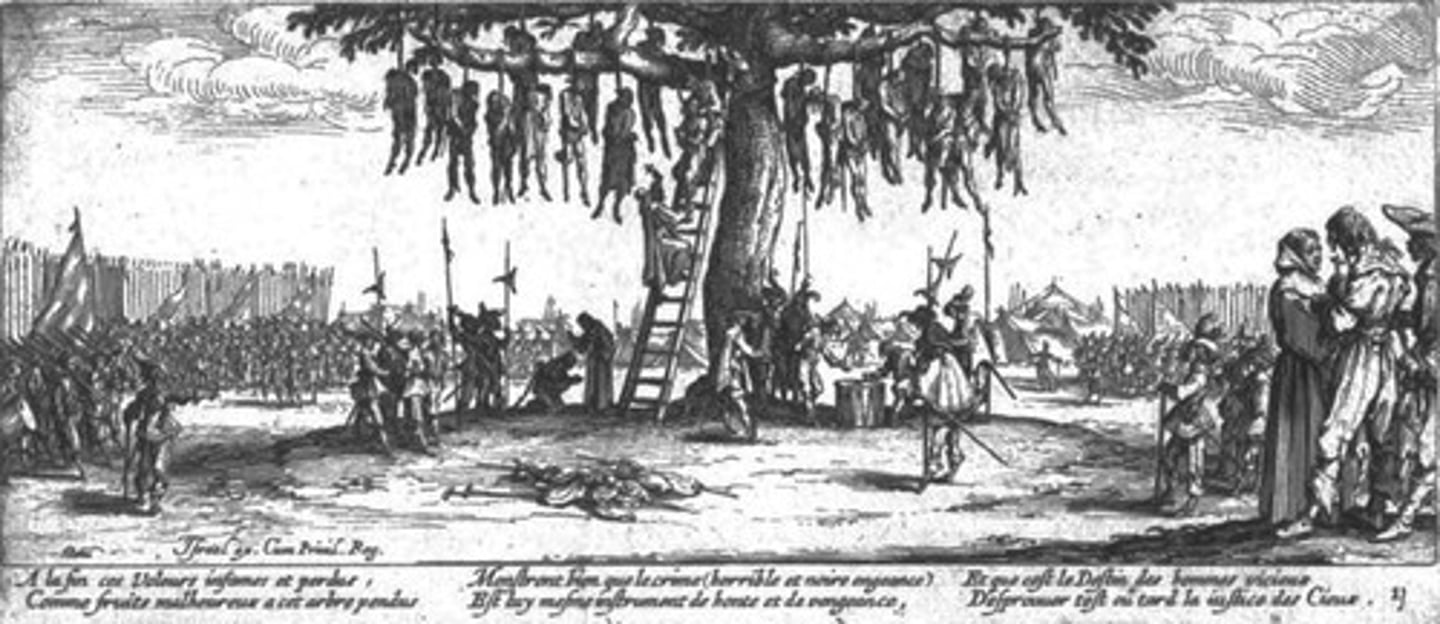Mr. Goode AP Euro Unit 2, AP Euro - Reformation in Europe
1/60
Earn XP
Description and Tags
Name | Mastery | Learn | Test | Matching | Spaced | Call with Kai |
|---|
No analytics yet
Send a link to your students to track their progress
61 Terms
Reasons for the Reformation
- People Heavily Invested in Religion (Integral Part Of Their Daily Lives)
- Ignorance and Corruption in the Church (Indulgences, Pluralism, Clerical Exemption From Taxation)
- History of Dissent in Europe
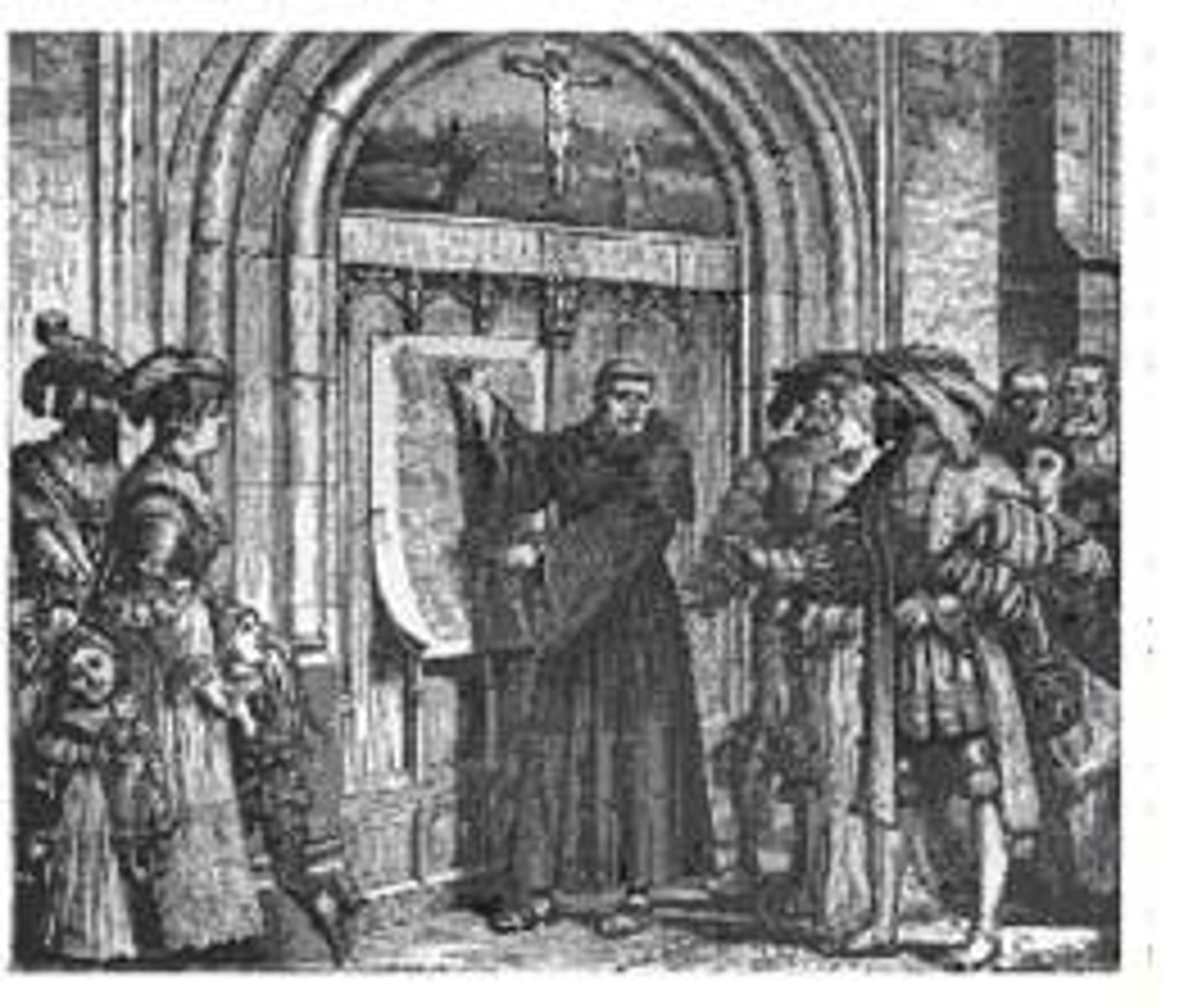
John Wycliffe
(c.1328-1384) Forerunner to the Reformation. Created English Lollardy. Attacked the corruption of the clergy, and questioned the power of the pope. Said the Bible should translated into the vernacular.
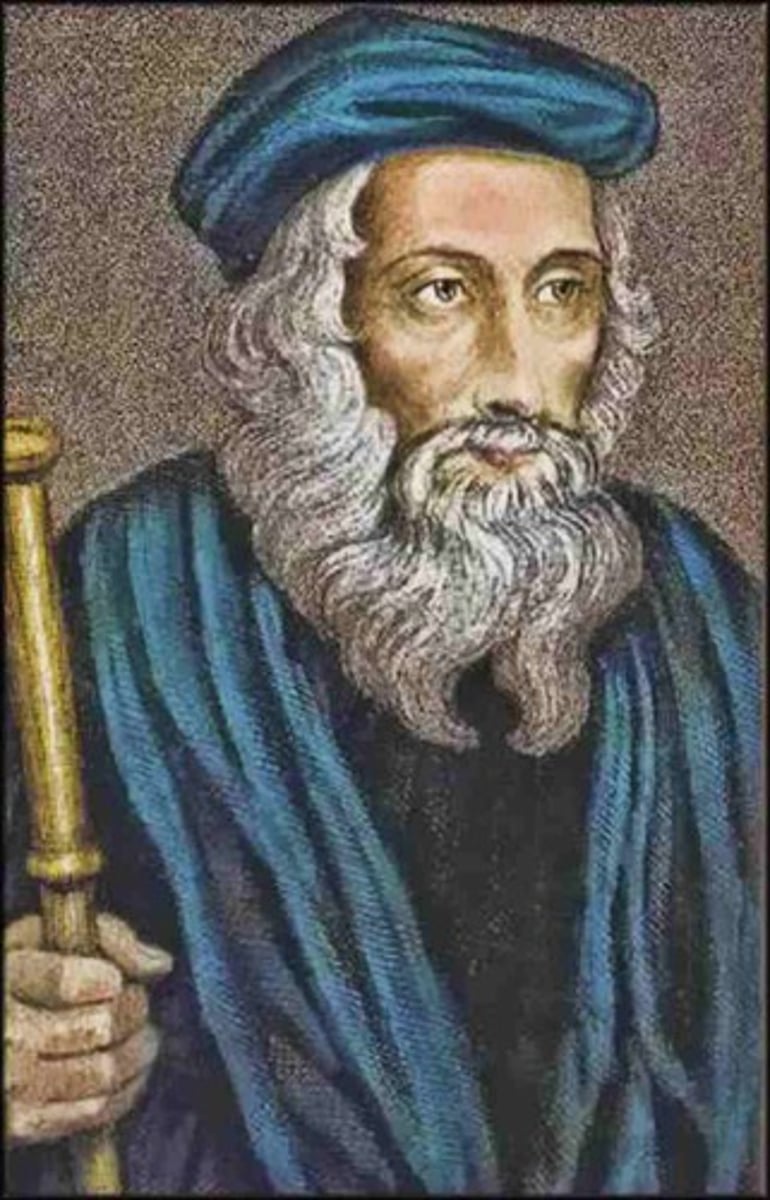
Jan Hus
Bohemian critic of the church (14th century)
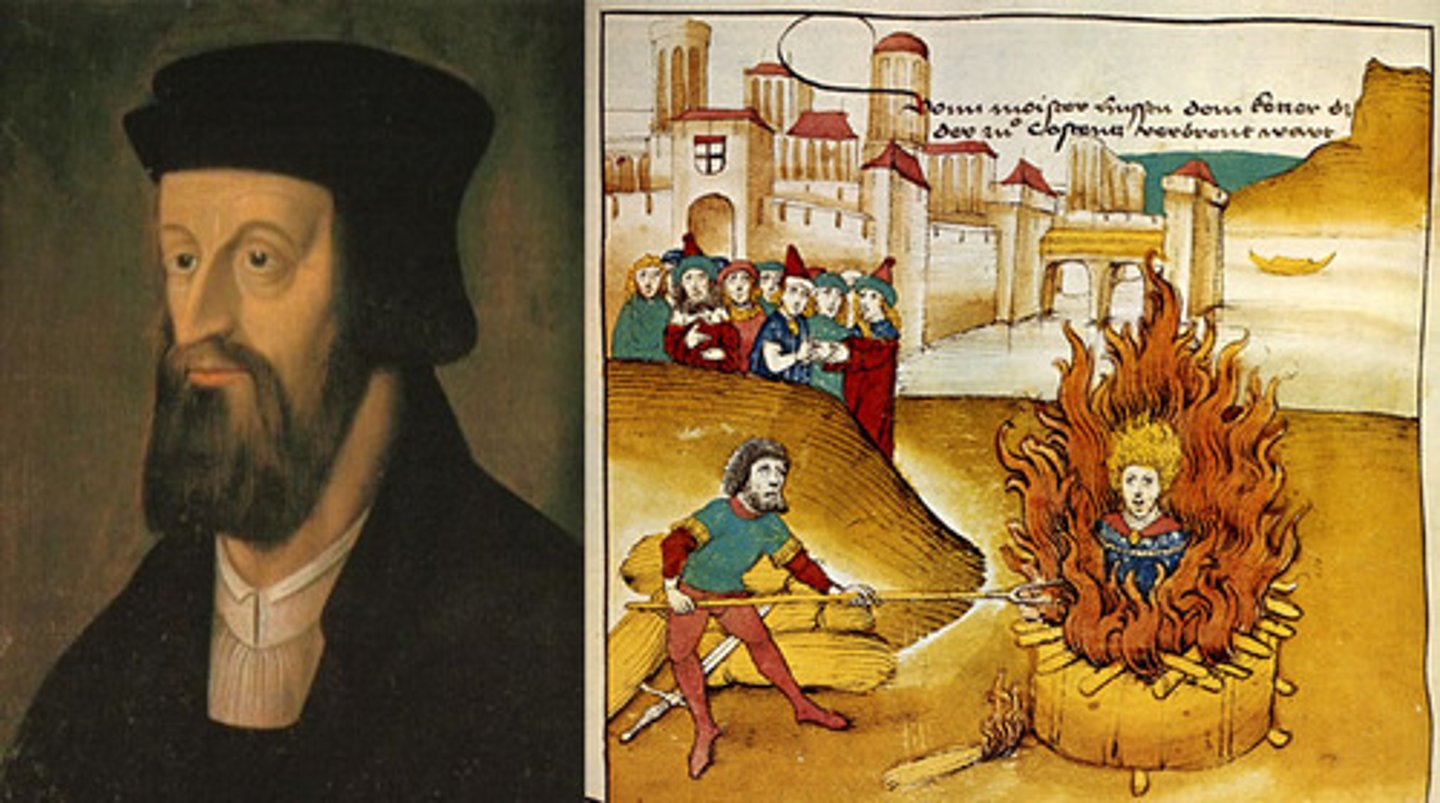
Erasmus
Christian Humanist who criticized the church, as well as Luther. "Laid the egg that Luther hatched."
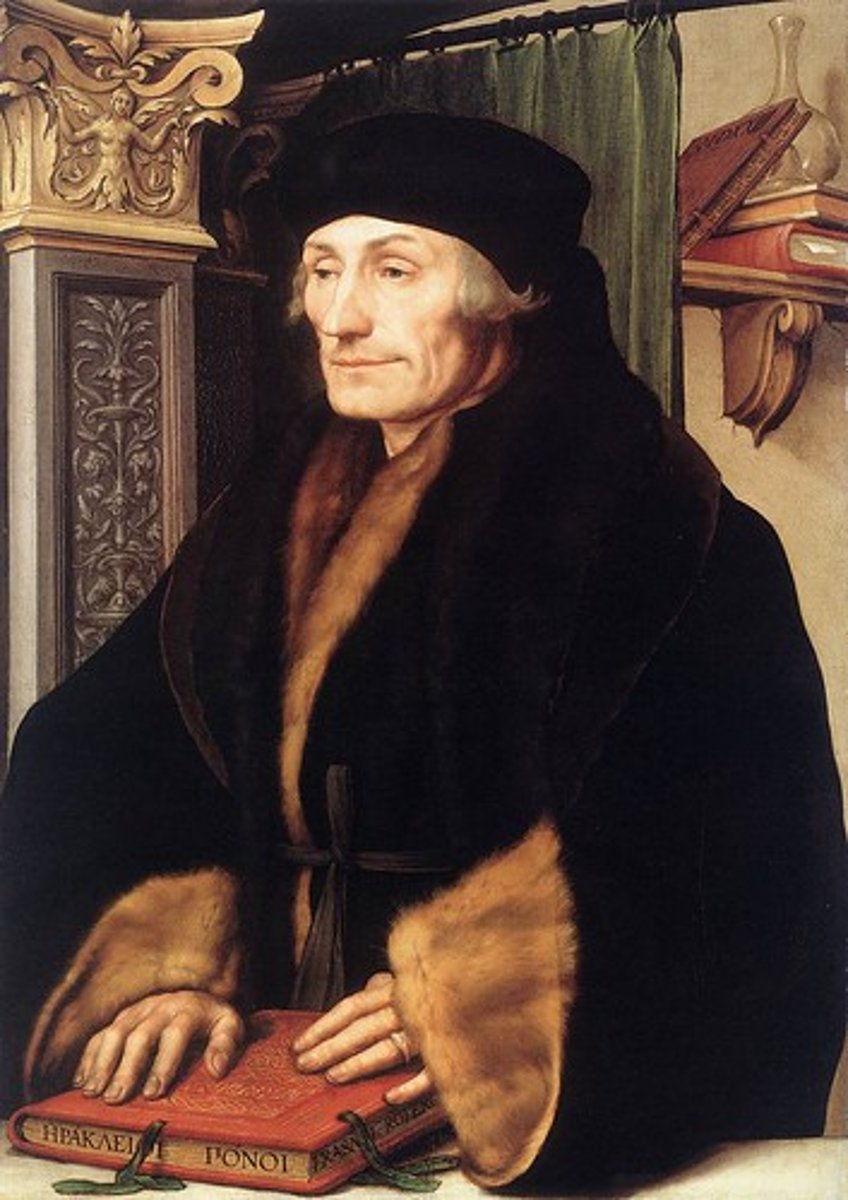
Martin Luther
- German Theologian
- 95 Theses (1517)
- Against Indulgences
- Argued For Direct Connection To God Via Scripture
- Opposed Political Dissent
- Opposed German Peasant's War (1525)
- Beliefs Primarily Centered in Central and Eastern Europe and Scandinavia
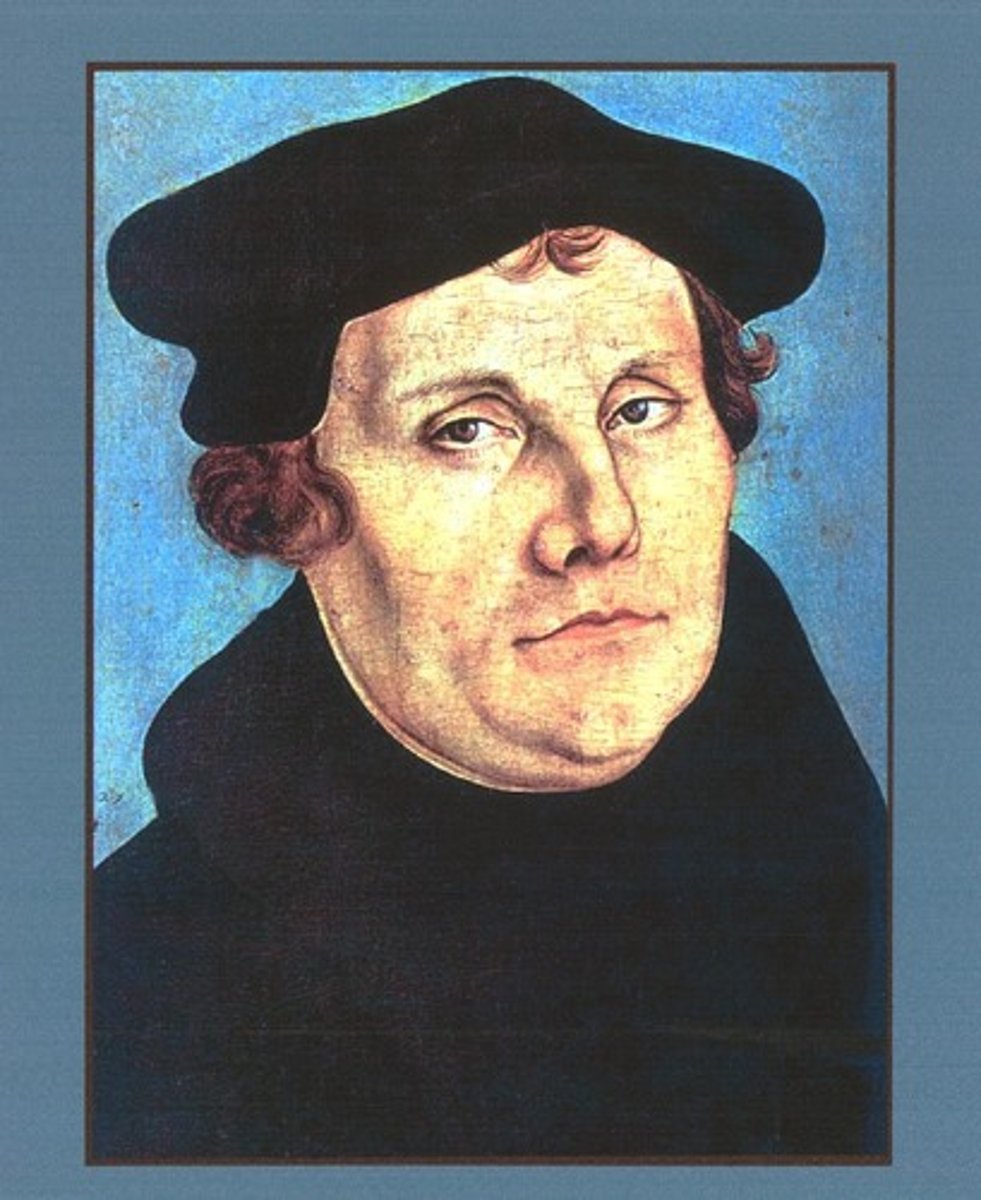
Diet of Worms (1521)
Luther's Heresy trial before Charles V in the Holy Roman Empire in which Luther was expected to recant . He did not, and the Diet issued the Edict of Worms: banishment from the H.R.E.
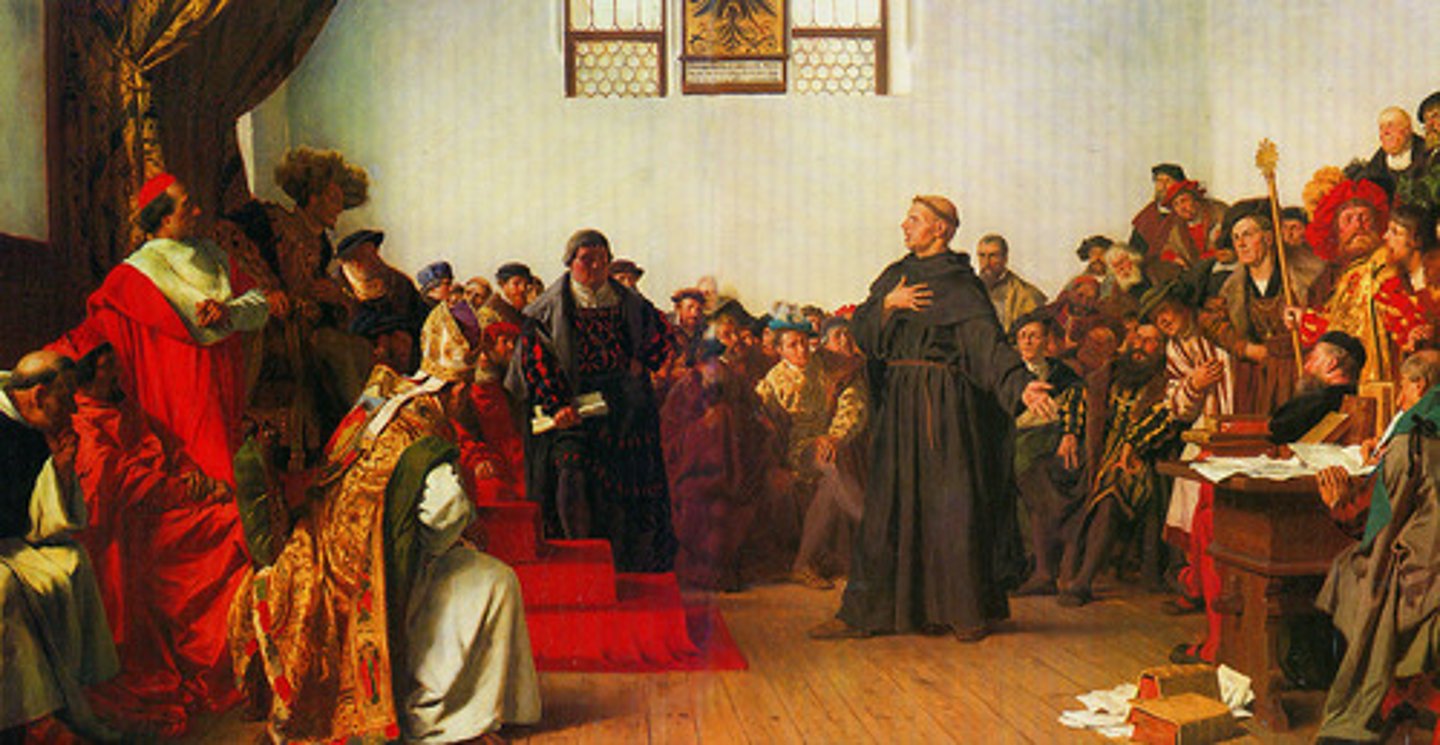
German Peasant's Revolt
- Central Holy Roman Empire (1525)
- Aggravated by Crop Failures in 1523 & 1524
- Over 70,000 Peasants Killed By Noble Response
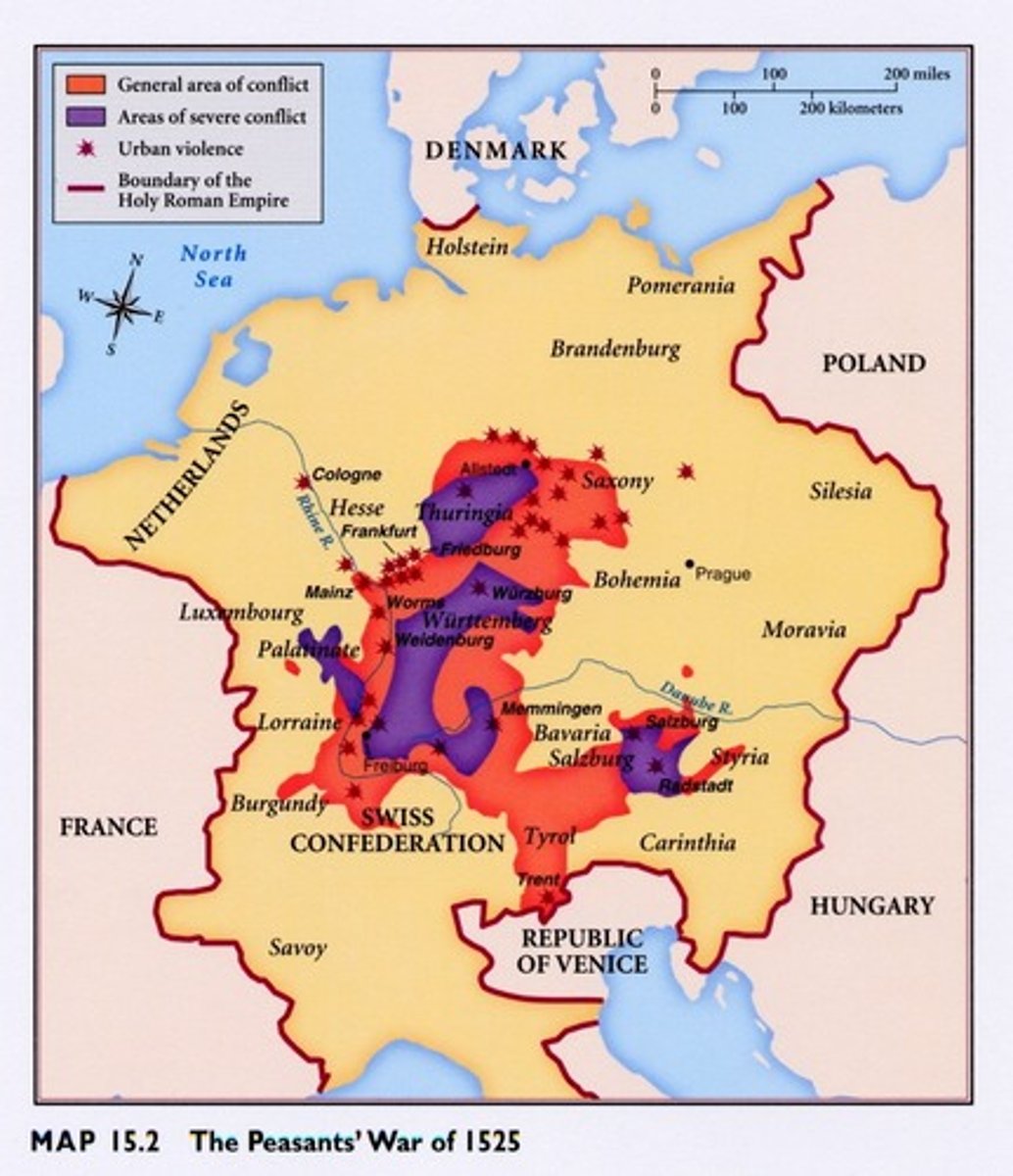
Charles V & Habsburg Rule
- Charles V (1519 - 1556) Inherited Both Spain & Territories W/in the Holy Roman Empire
- Elected Holy Roman Emperor In 1519
- Oversaw Spanish Empire In New World
- Strongly Catholic
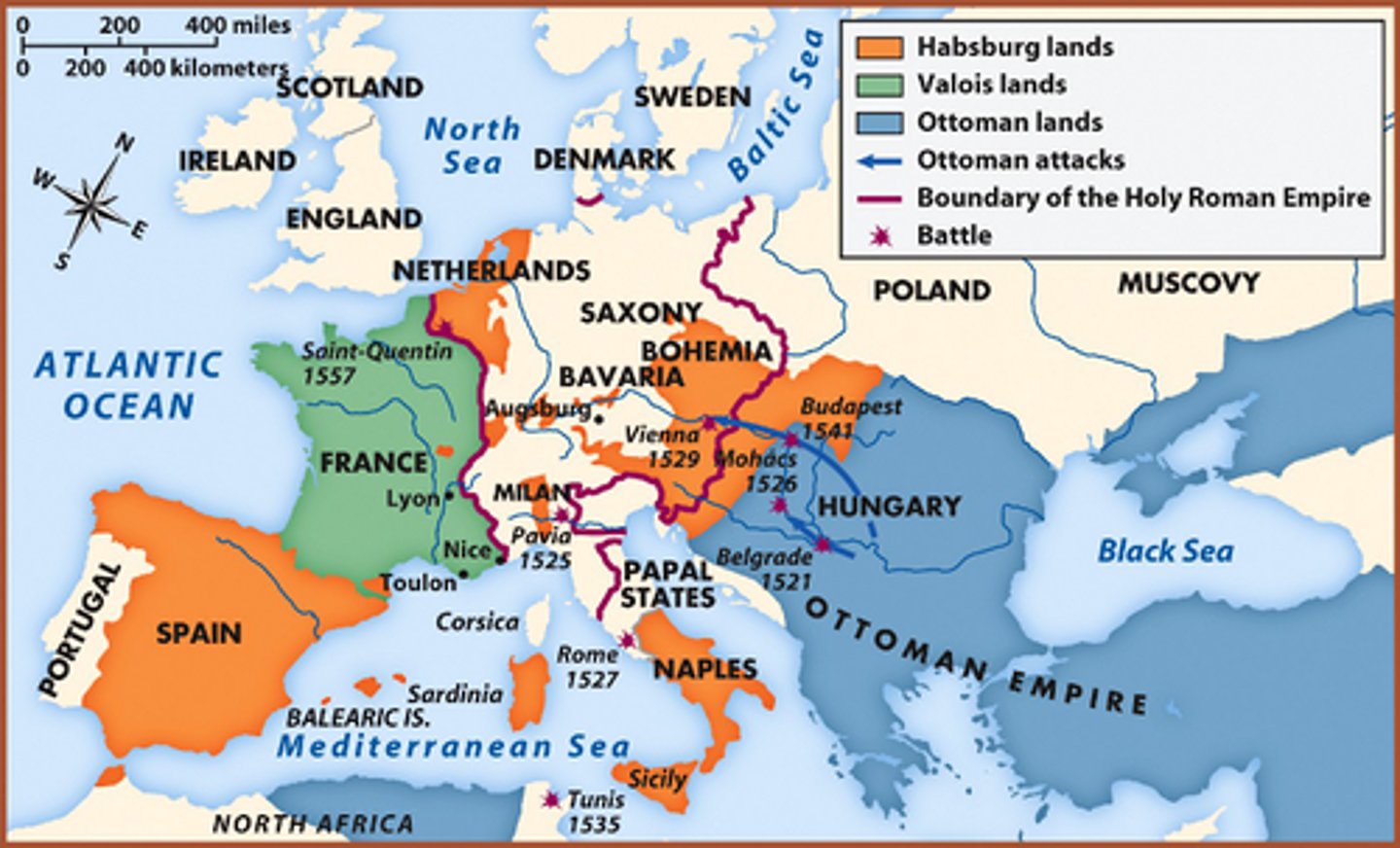
The Hapsburgs (under Charles V)
Who ruled the New World, parts of Italy, Netherlands, Spain, & the Holy Roman Empire
Ulrich Zwingli
- Swiss Protestant Leader and Thinker (Zurich)
- Agreed With Many Of Luther's Ideas
- Disagreed with Luther on Specifics of Eucharist
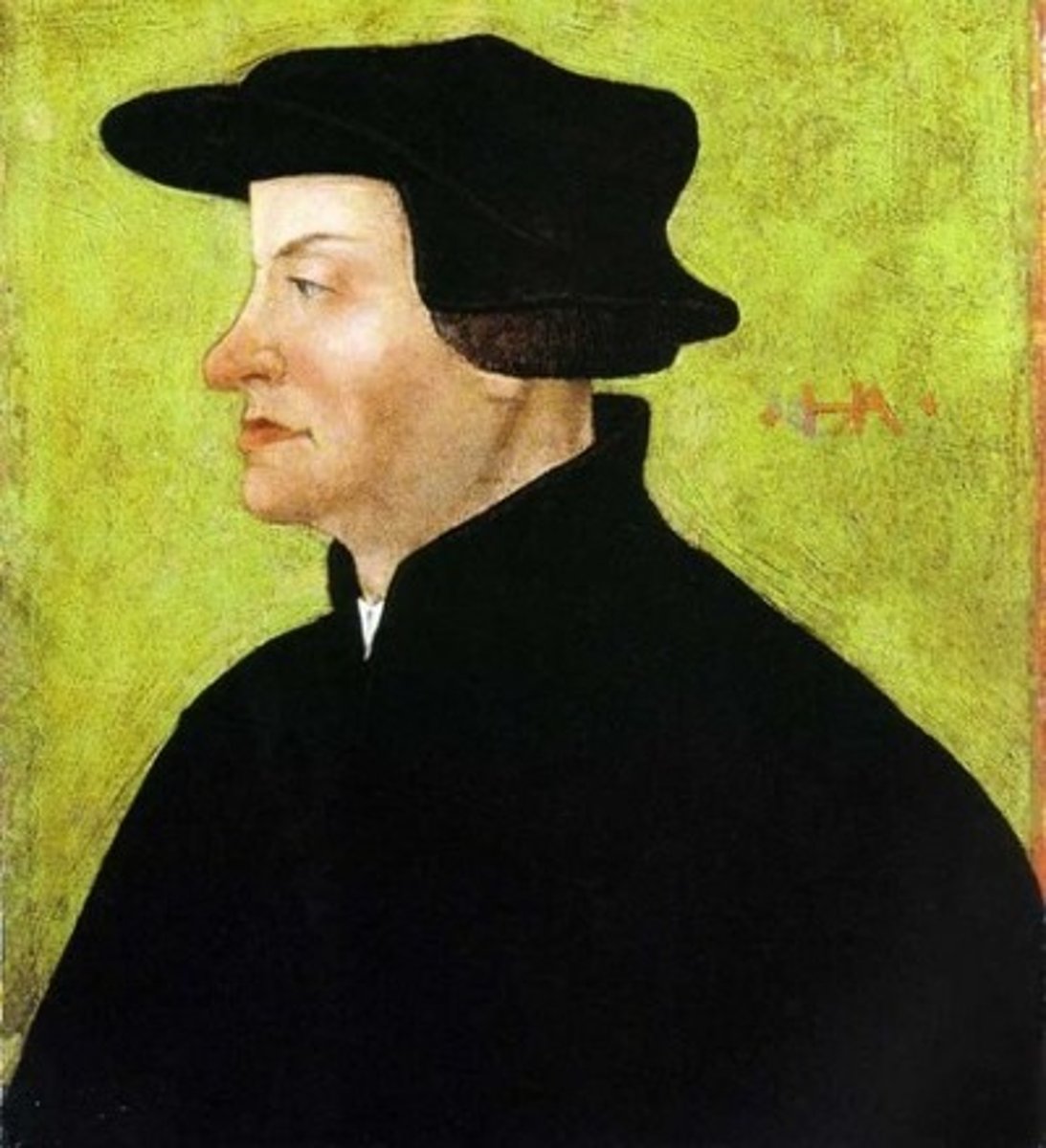
John Calvin
- Institutes of the Christian Religion (1536)
- Controlled Geneva, Switzerland
- Predestination
- Supported Political Dissent
- Reform Church
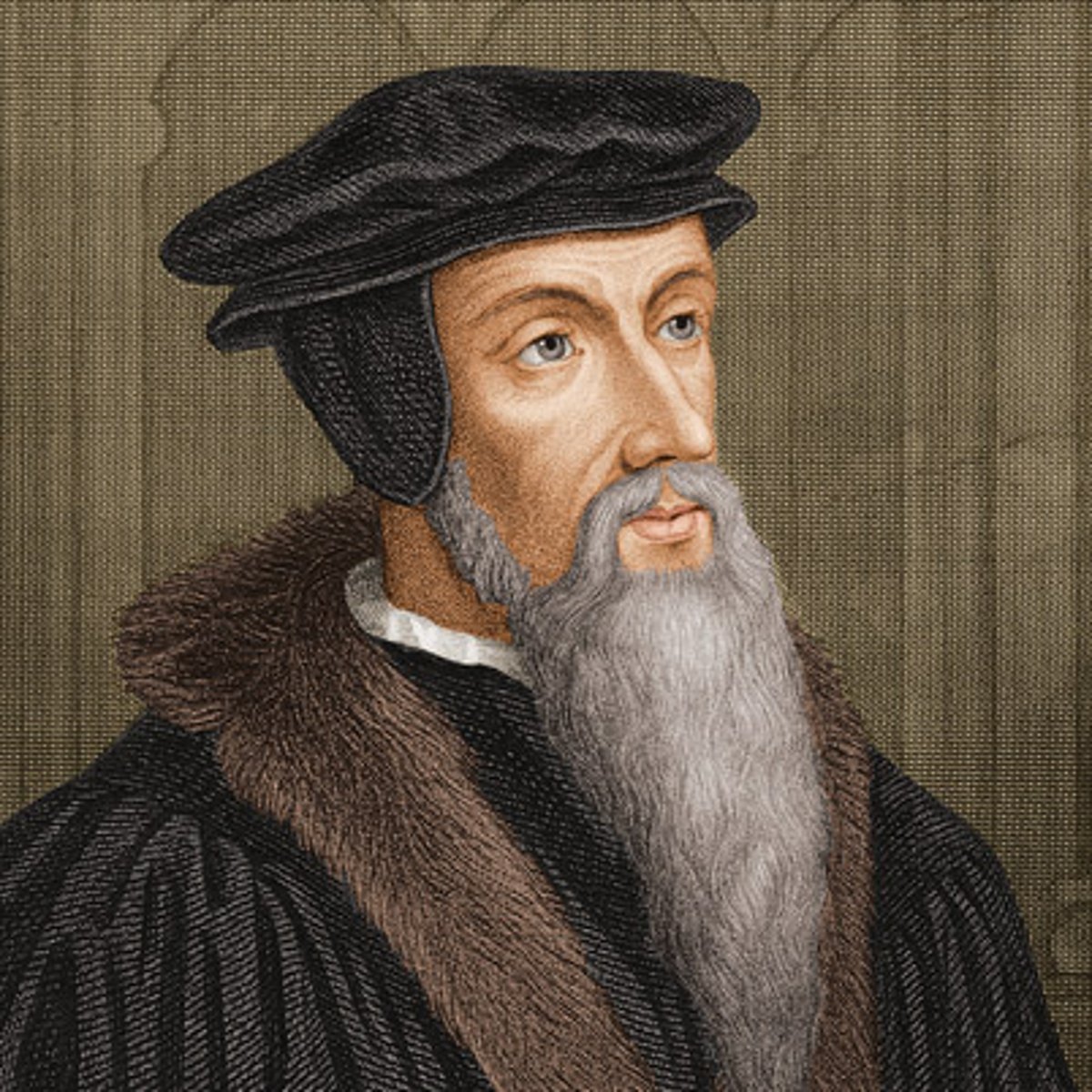
Issue that Luther and Zwingli fought over
communion/Lord's Supper
Lutheranism
- Branch of Protestantism Founded on Martin Luther's Teachings
- Central, Eastern, and Northern Europe
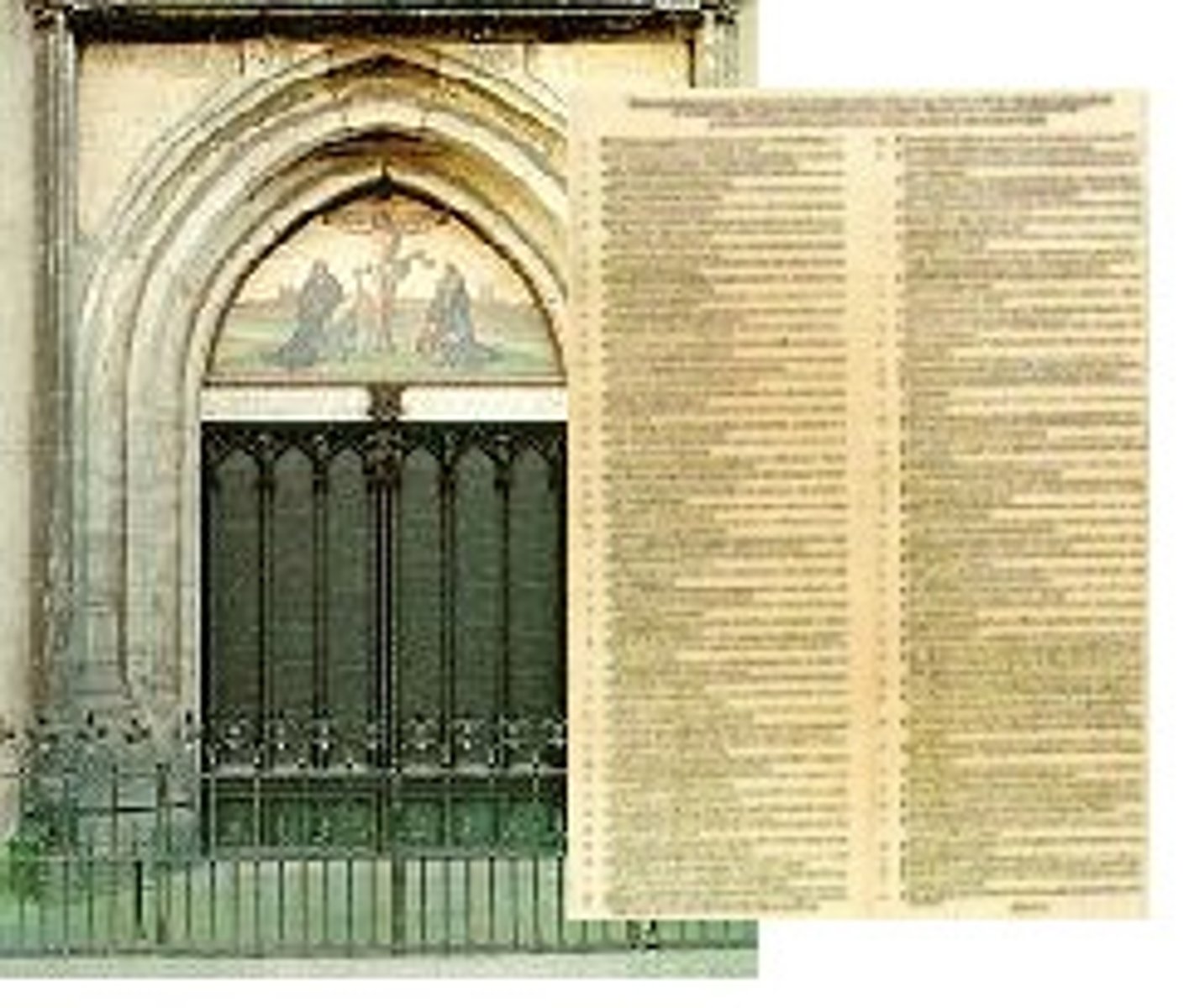
Protestantism In Eastern Europe
- Protestant Ideas Spread Intermittently To Eastern Europe
- Many Regions Resisted Protestant Influence Out Of Strong Anti-German Sentiment
- Lutherans, Calvinists, & Other Groups Had Trouble Unifying In Places Like Poland (Poland Remained Strongly Catholic)
Calvinism
Protestant reform group in Netherlands, Scotland, parts of France and England (Puritans)
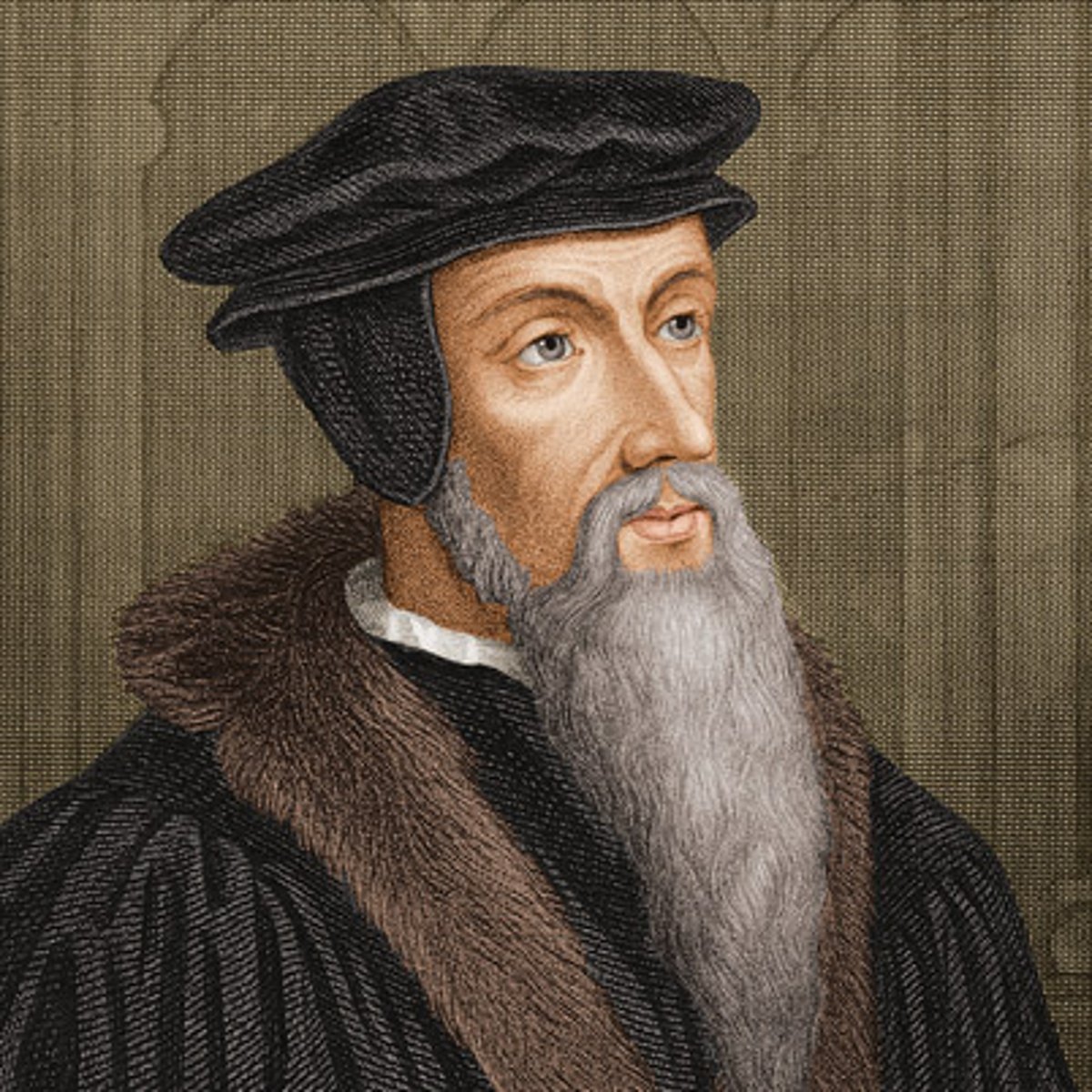
TULIP (Calvinism)
T- total depravity
U- unconditional election
L- limited atonement
I- irresistible grace
P- perseverance of the saints

Predestination
Idea of Calvin that said God determined who would be saved and damned at the beginning of time.
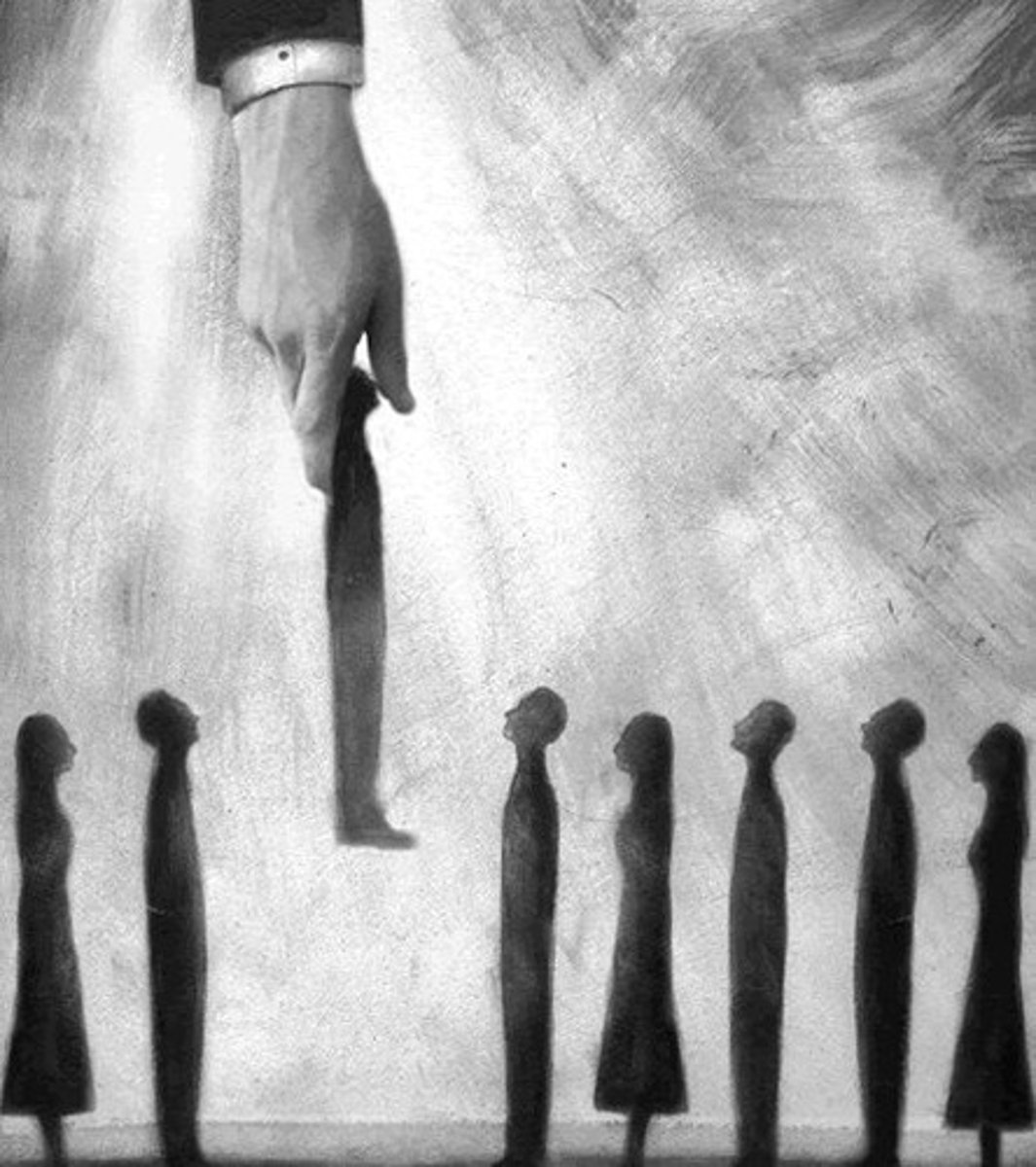
Two sacraments accepted by (most) Protestants
holy communion (Lord's supper) and baptism.
Similarities B/twn Calvinism & Lutheranism
- Both Preached Scriptural Reading As Primary Road To Connecting To God
Differences B/twn Calvinism & Lutheranism
- Calvinism Supported Political Dissent; Lutheranism Did Not
- Calvinism Preached Predestination; Lutheranism Did Not
- Lutheran Ideas Spread To One Distinct Region of Europe; Calvinism Spread To Various Regions & Was Often Tied To Political Discontent
Anabaptists
Protestants who were largely hated by everyone. Believed in separation of church and state
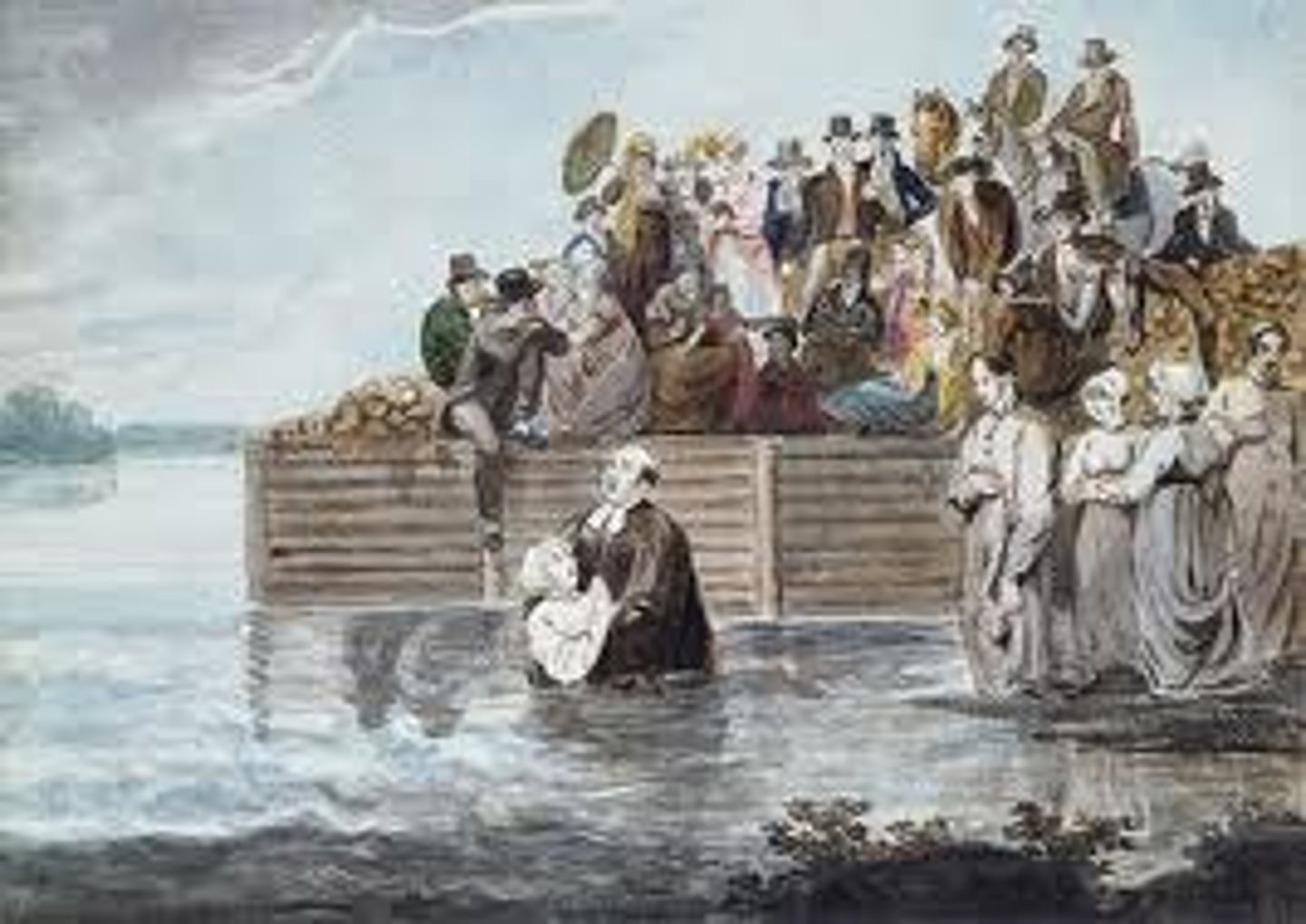
Peace of Augsburg (1555)
Document in which Charles V recognized Lutheranism as a legal religion in the Holy Roman Empire.
- Ended 16th Century Religious Wars In Germany (1555)
- "Whose Realm, His Religion"
- Resulted in Religious Refugees Throughout Germany
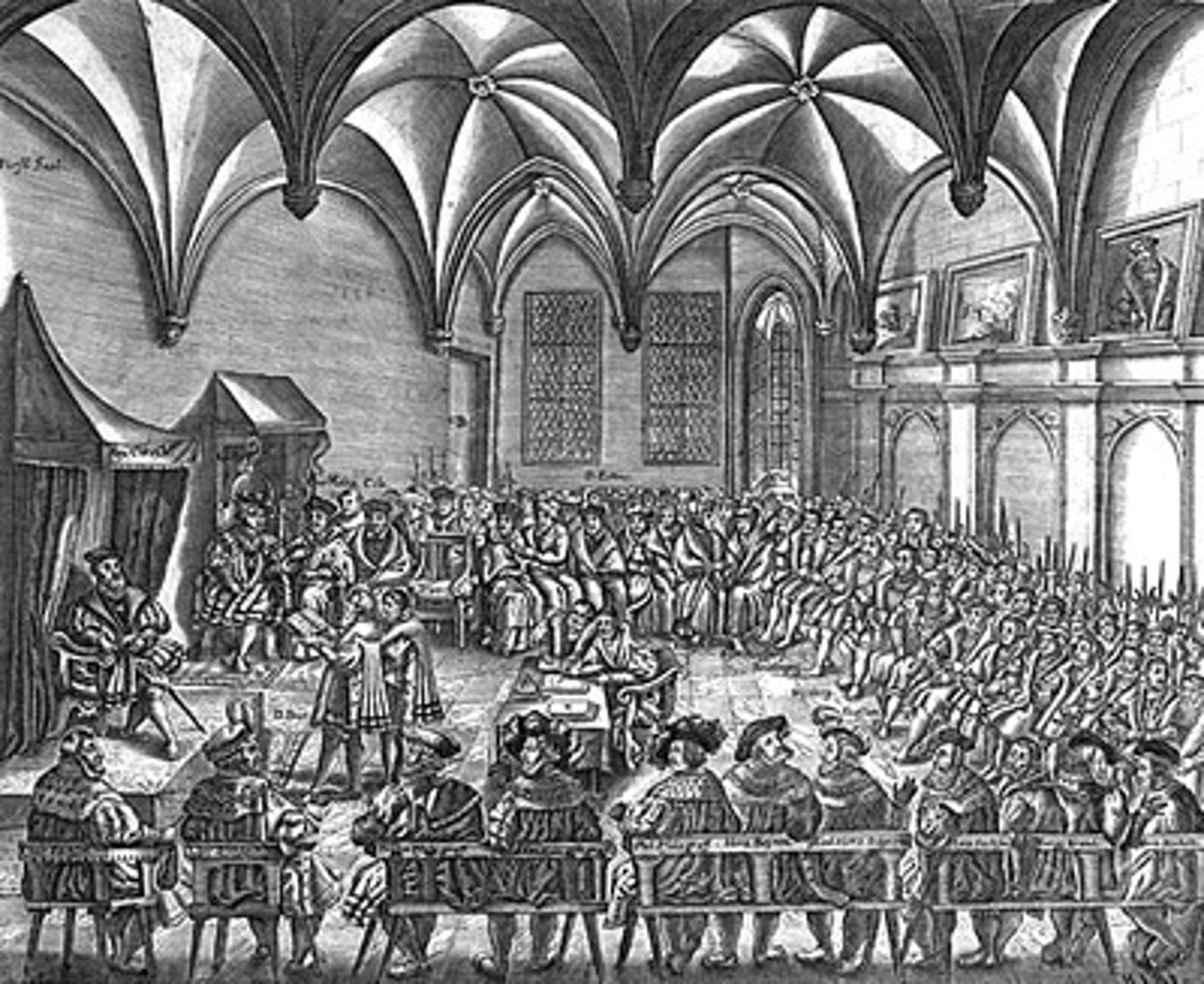
Trade Guilds
Tightly controlled groups of skilled laborers. These groups controlled production of specific products. Examples would be cobblers, blacksmiths, tanners, etc. Each group consisted of masters and apprentices.
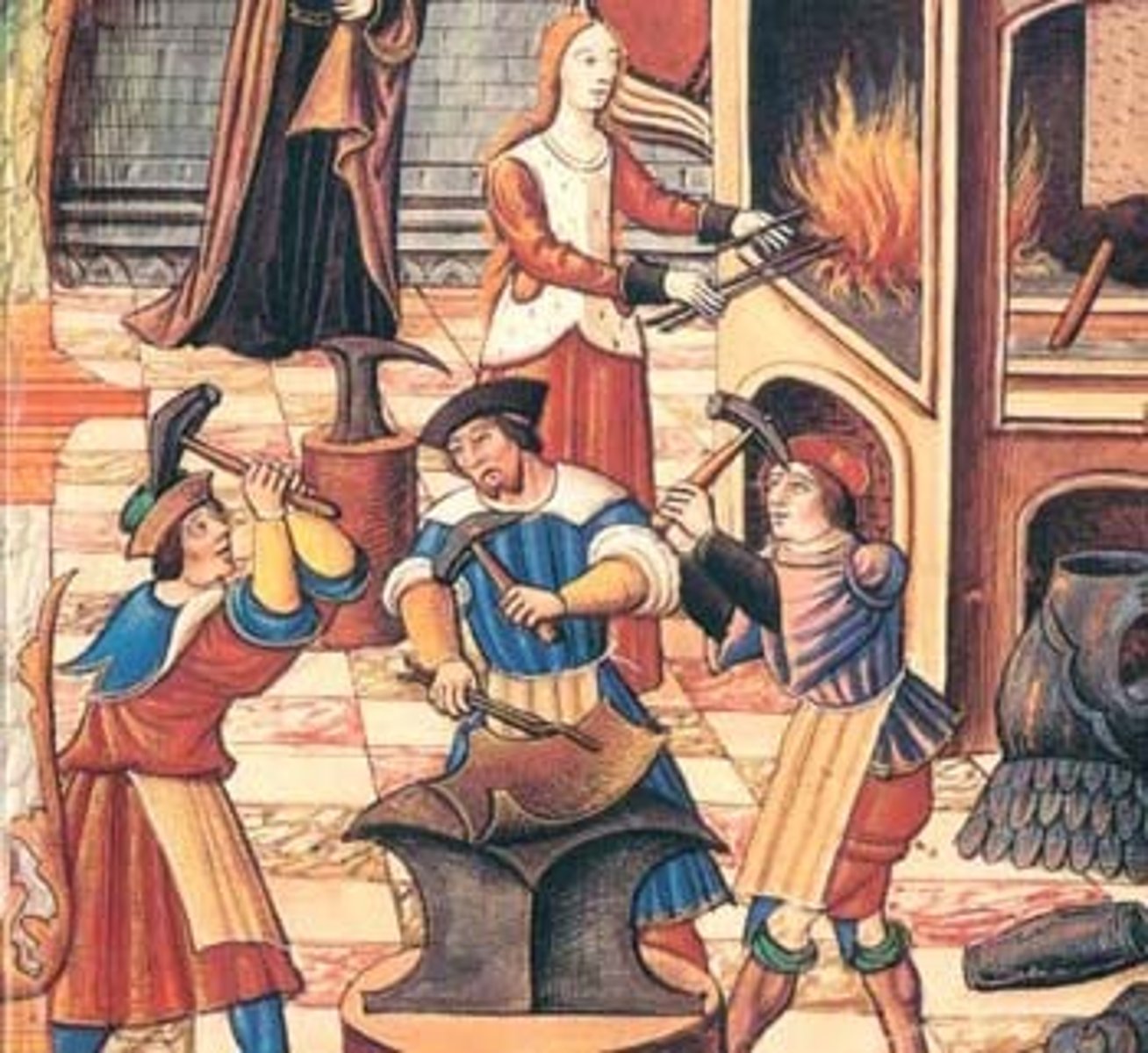
Putting Out System
Using rural families to create/produce goods. This circumvents the restrictive guilds in towns.
Protestantism
- Generally Believed Similar Things: Faith and Scripture Were Only Way To Salvation
- Disagreed About Role of Eucharist (Lutherans - Christ Was "In" The Eucharist, Zwingli - Christ Was Symbolized By Eucharistic Celebration)
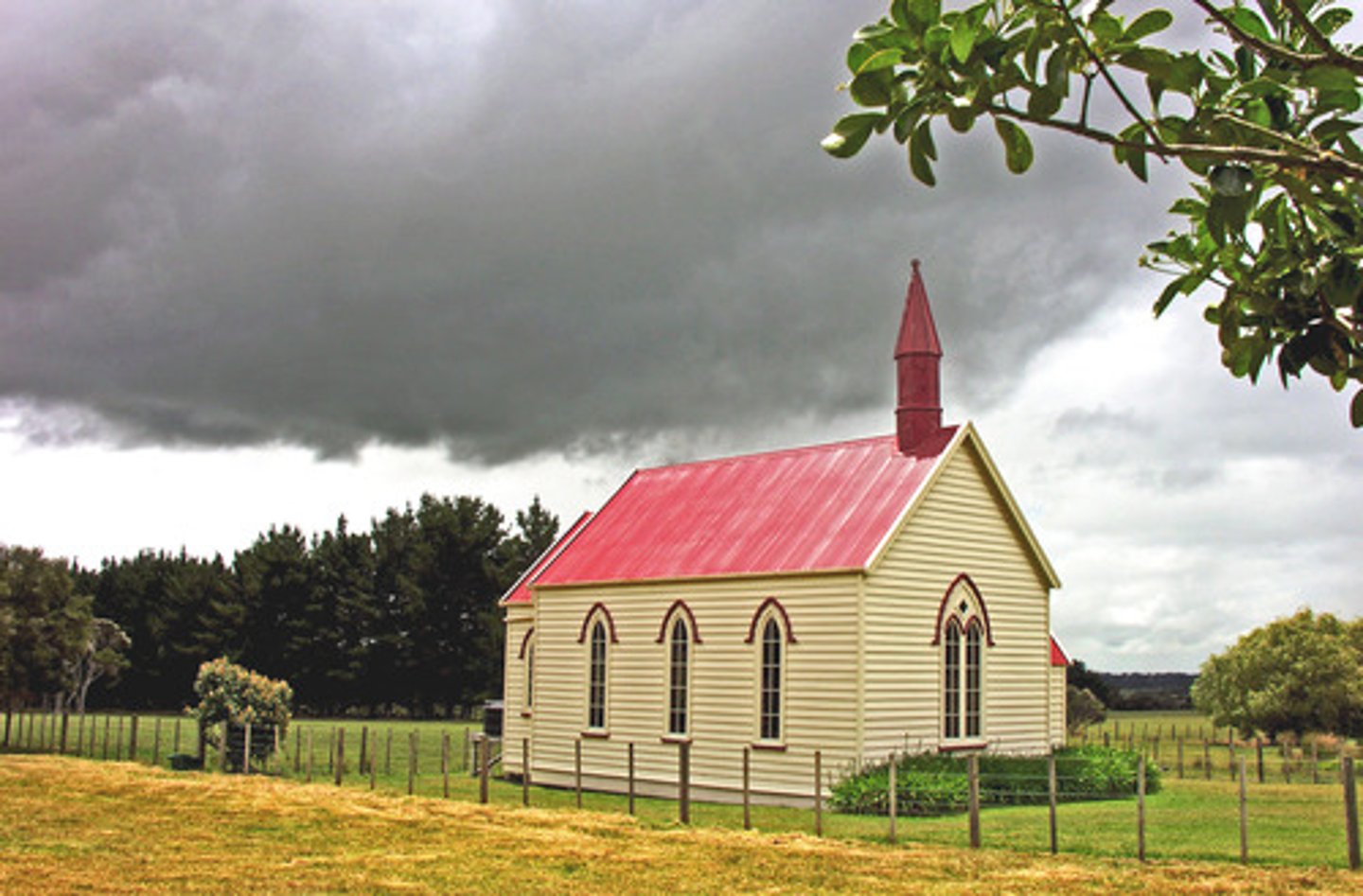
Protestantism & Marraige
- Protestants Saw Marriage As A Sacred Responsibility
- Did Not See Celibacy As Natural (Opposed Celibate Clergy)
- Believed Women Were Subject To Men In Marital Relationships
- Supported Divorce As A Means Of Fixing Extreme Marital Problems
Protestantism & Women
- Convents Were Closed By Protestants
- Condemned Prostitution Due To Belief That Marriage Was The Only Pious Solution For Sexual Lust
- Women's Roles Came To Be Seen As Primarily Related To Marriage
-Luther's views actually more progressive than Catholics at this time (equal inside marriage)
Religious Wars
- Switzerland (1520s - 1530s)
- German States (1546 - 1555) (Peace of Augsburg)
- France (1562 - 1598) (Est 2 - 4 Million People Killed)
Habsburg-Valois Wars
- 1494 to 1559 (a.k.a. - Italian Wars)
- Wars Fought Over Control Of Italian City-States
- Belligerents: France, Holy Roman Empire, Ottoman Empire, England, Scotland, Spain, Swiss Confederation, Saxony, and the Various Italian City-States
- Reason for Italian Renaissance Decline
Catholic Counter-Reformation
An internal reform of the Catholic Church in the sixteenth century; thanks especially to the work of the Council of Trent (1545-1563), Catholic leaders clarified doctrine, corrected abuses and corruption, and put a new emphasis on education and accountability.
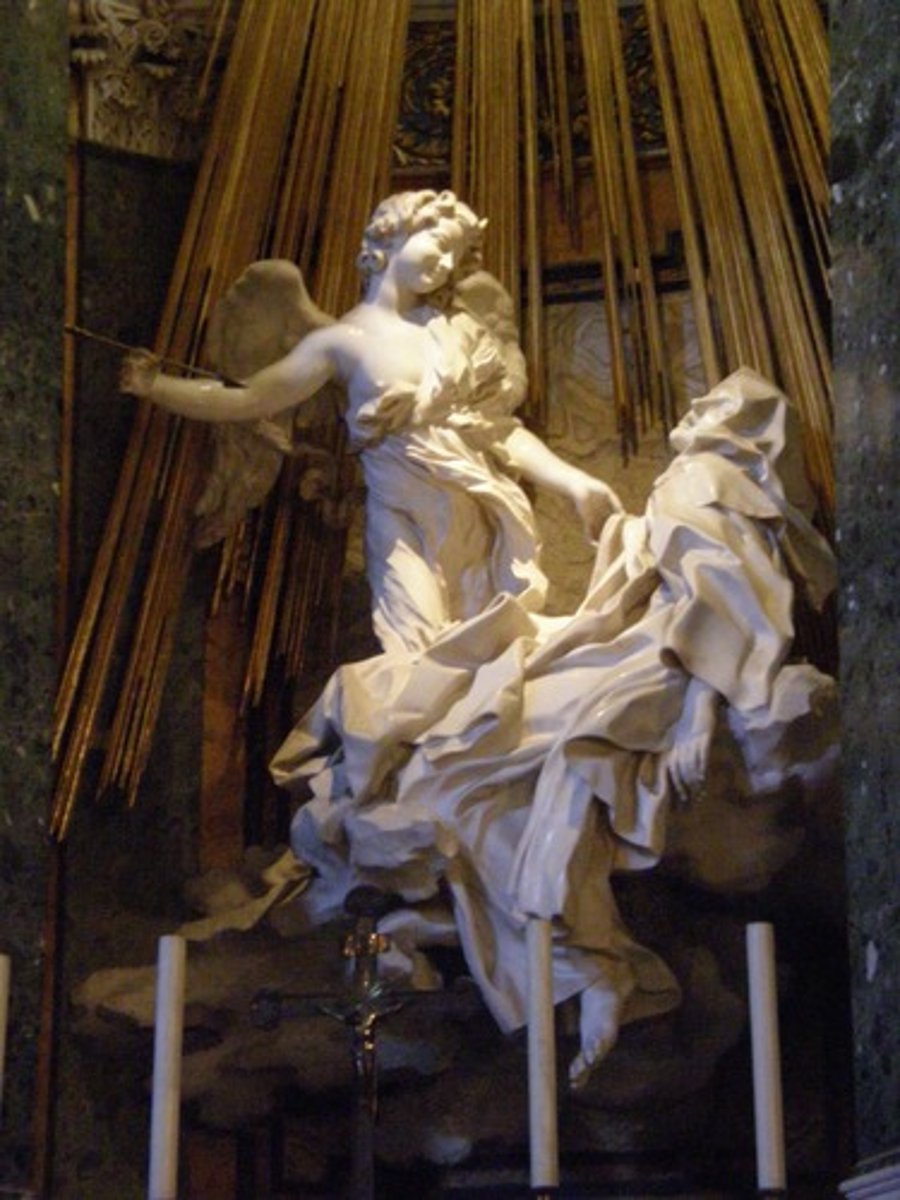
Council of Trent
- 1545 to 1563
- Called By Pope Paul III To Reform Church
- Reaffirmed The 7 Sacraments
- Gave Equal Validity to Scripture & Church Rulings
- Tried To Improve Corruption Issues
- Decreed Marriage To Be A Publicly Held Event (Ended Tradition of Secret Marriages)
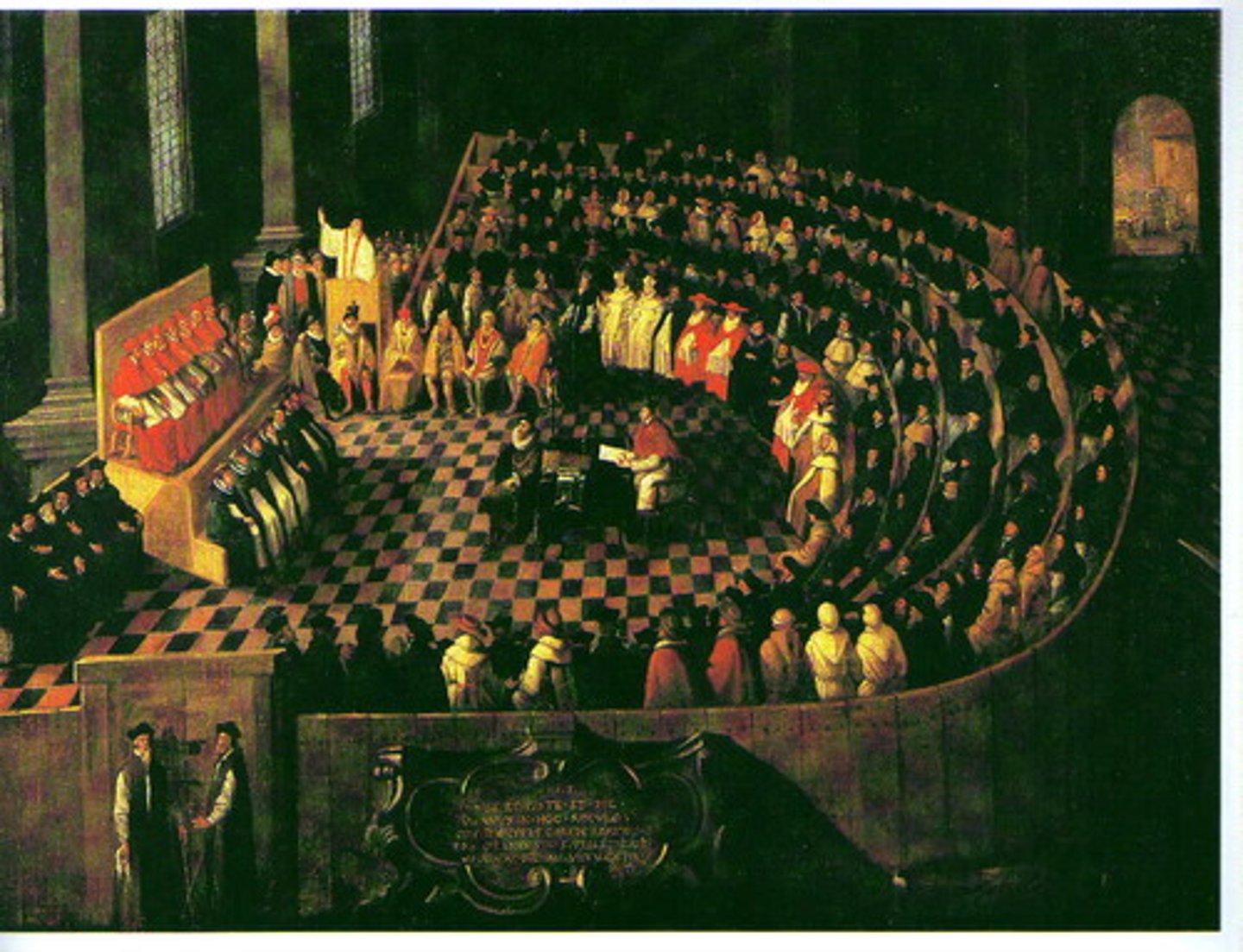
Society of Jesus
- Jesuits
- Founded in 1540 by Ignatius Loyola
- Goal: "To Help Souls"
- Special Obedience To Pope
- Hierarchical
- Responsible For Missionary Activity That Brought Large Parts of Europe Back To Catholicism (Also, Brazil, Japan, & Congo)
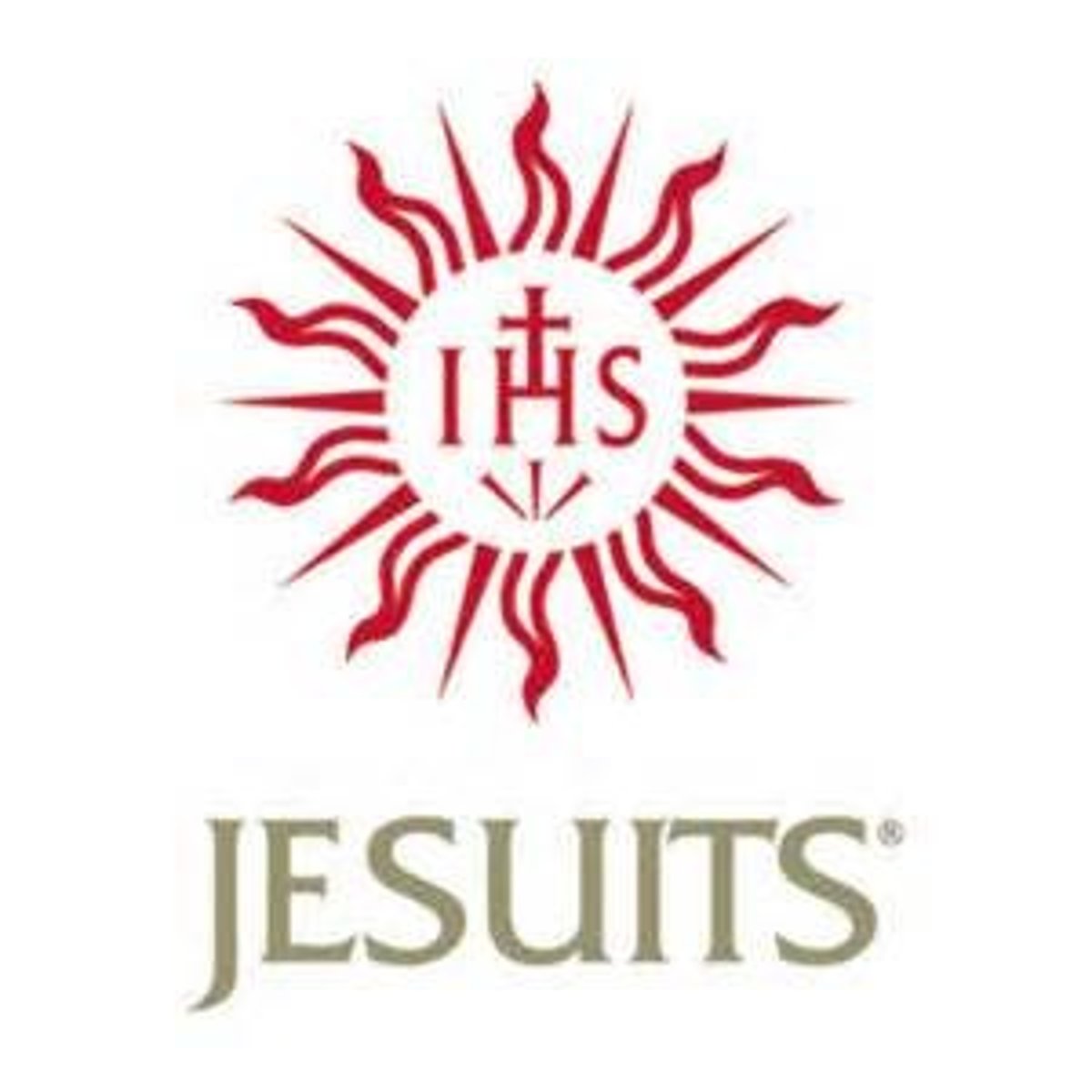
Characteristics of Baroque
Emotional, ornate, dynamic (active), dramatic, asymmetric, 1500s-1730s, represented the passion of the Catholic church during the Reformation
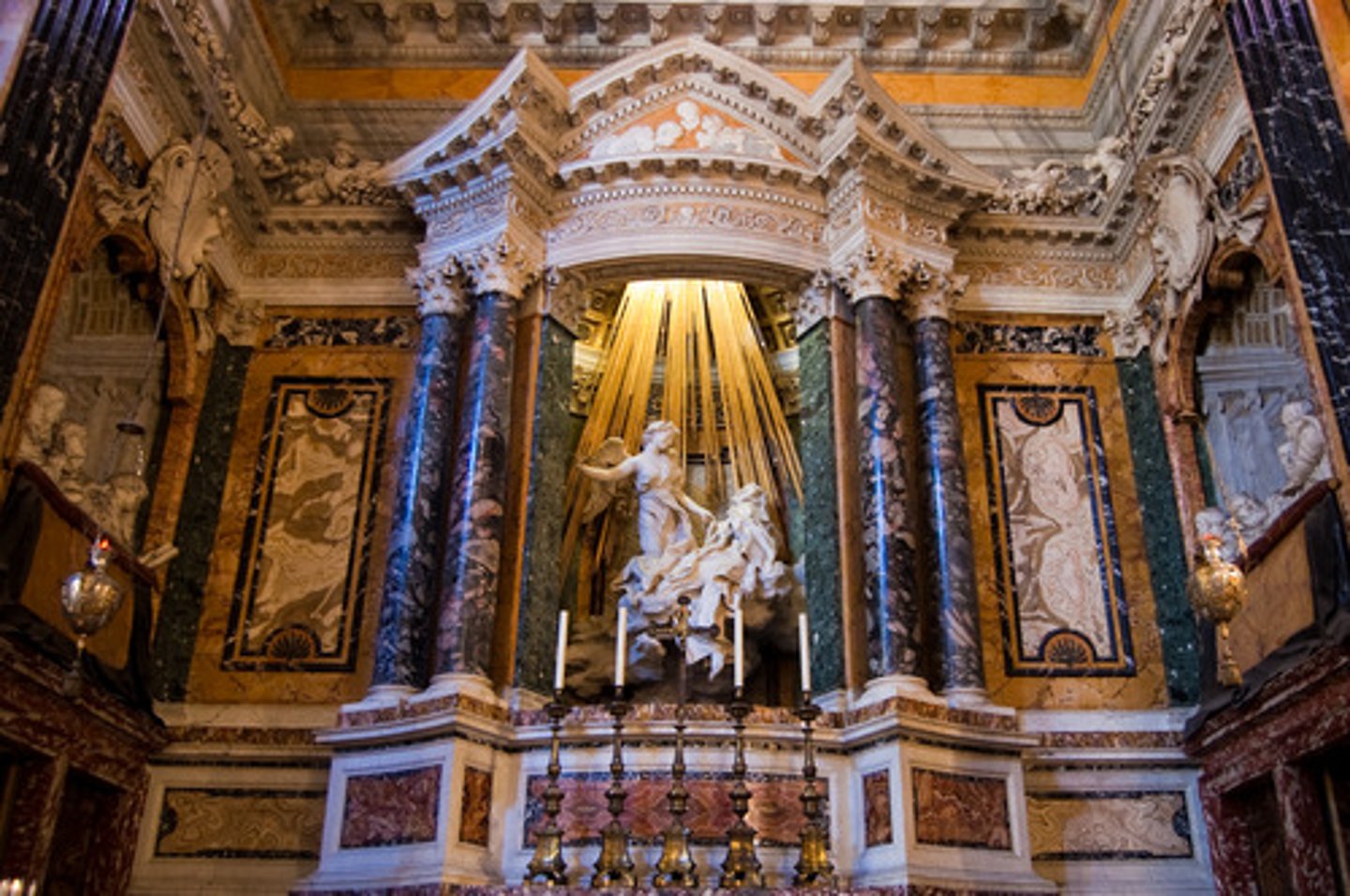
Henry VIII
- Tudor King with six wives.
- King of England Responsible for Founding of Anglican Church (1534) as a result of wanting a divorce from first wife who did not bear him a son.
- Dissolved English Monasteries & Confiscated Church Land
- Enforced Adoption of Anglicanism In Largely Catholic Ireland
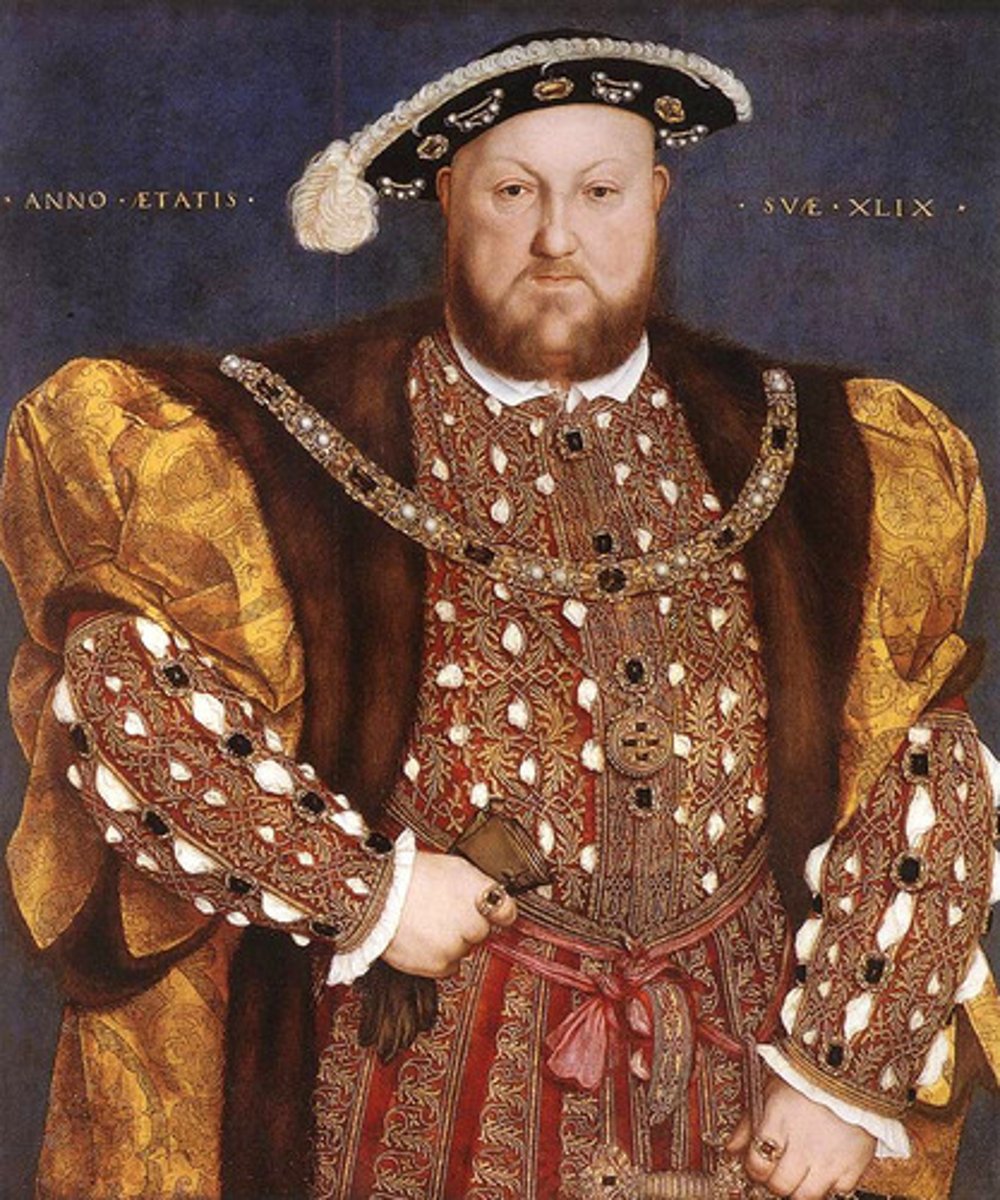
Anglicanism
church of England established first by Henry VIII.
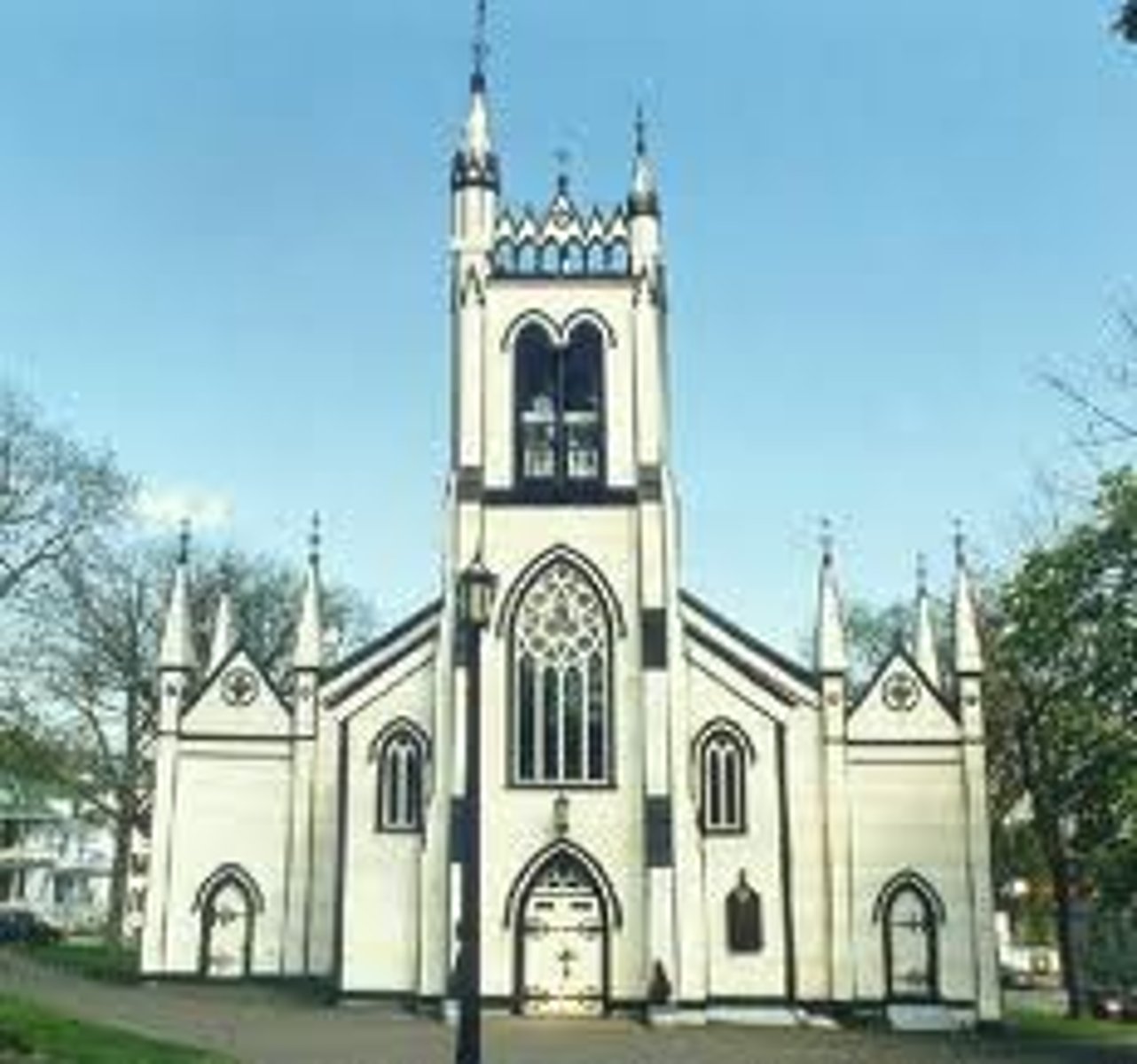
Mary Queen of Scots
Catholic cousin of Elizabeth I, next in line to the throne, imprisoned so she would not start a Catholic plot to overthrow Elizabeth I, planned assassination of Elizabeth I that Philip II of Spain supported, Elizabeth I found out and executed her
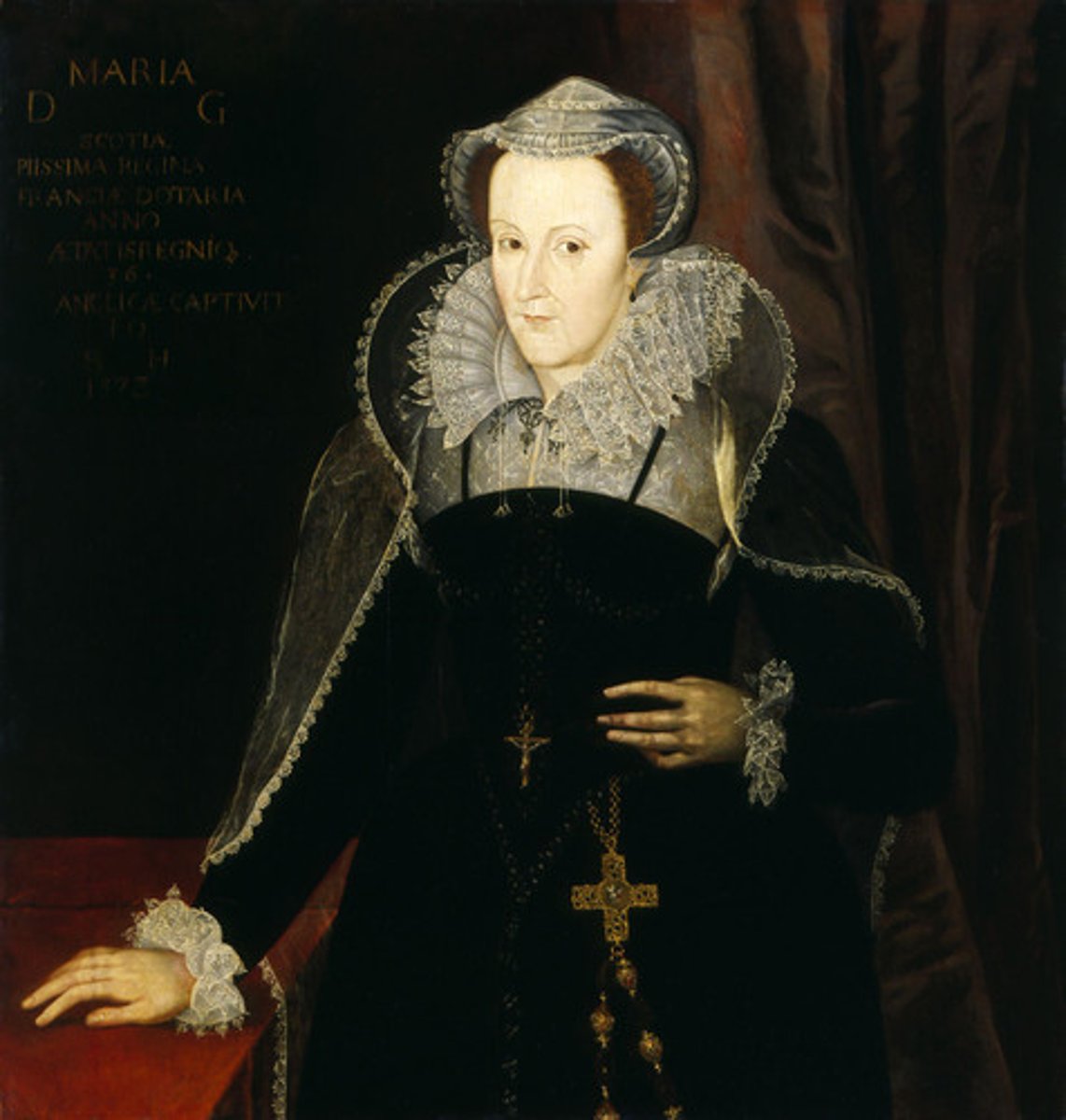
Queen Mary
Preceded Elizabeth I. Enforced Catholicism with Spanish husband Phillip II and punished Protestantism with death. Known as "Bloody Mary". Would die young giving the throne to Elizabeth.
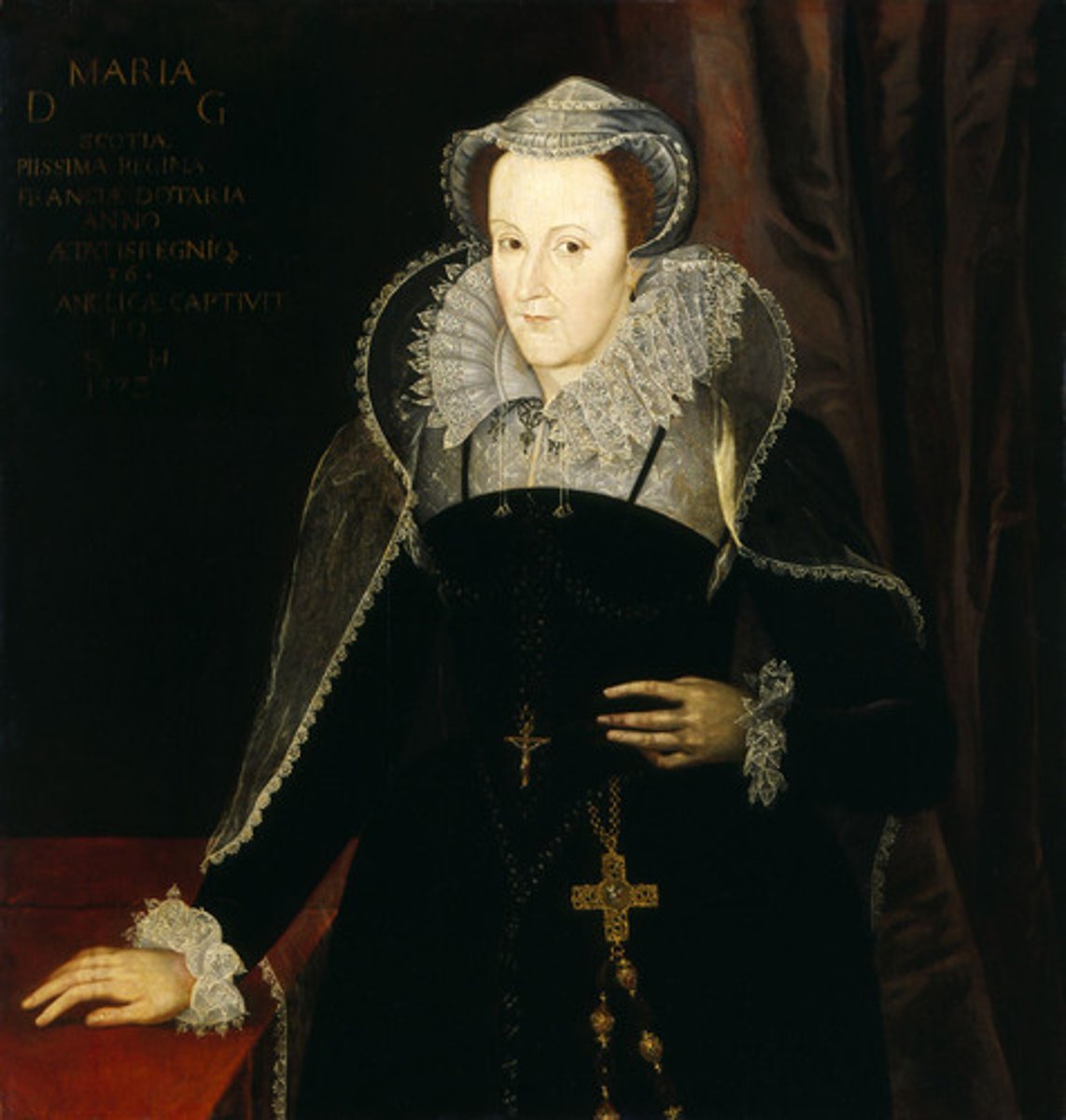
Phillip II
Was the Spanish king who ruled Spain & the New World. He was known as the "Catholic Crusader."
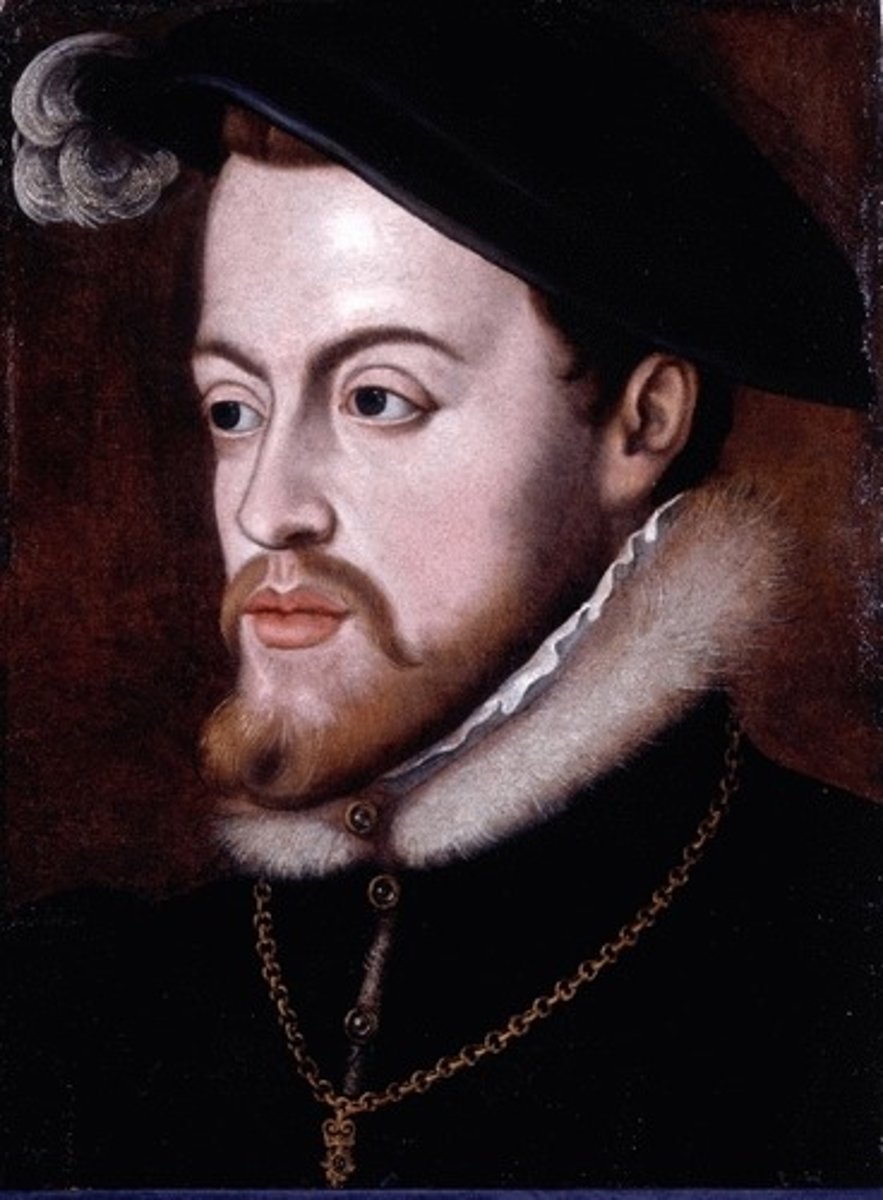
Phillip's Religious Goals
Make everyone Catholic - Spain, Europe, New World.
Spanish Armada
Spain's powerful navy that helped them monopolize the New World until their defeat in 1588.. Defeated due to smaller, faster English ships and stormy seas that took out many of the Spanish ships.
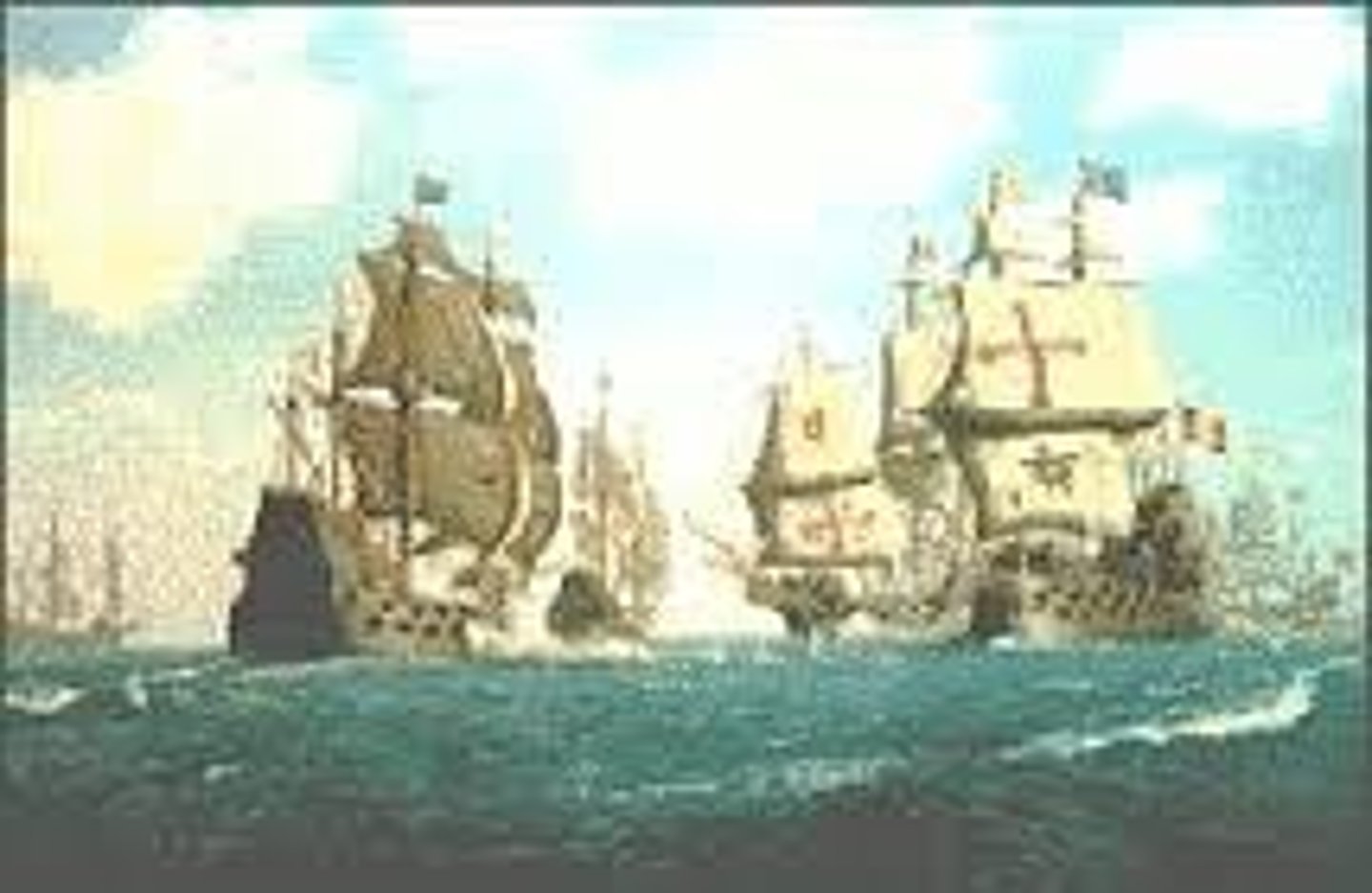
Elizabeth I
- Henry VIII's Daughter From Anne Boleyn
- Protestant But Ruled Moderately In Terms Of Religion
- Oversaw English Victory Over Spanish Armada (1588)
- Major Contribution Was Helping To End Large Scale Religious Disunity In England
- English Queen who affirmed England's commitment to Anglicanism. This greatly upset Phillip II.
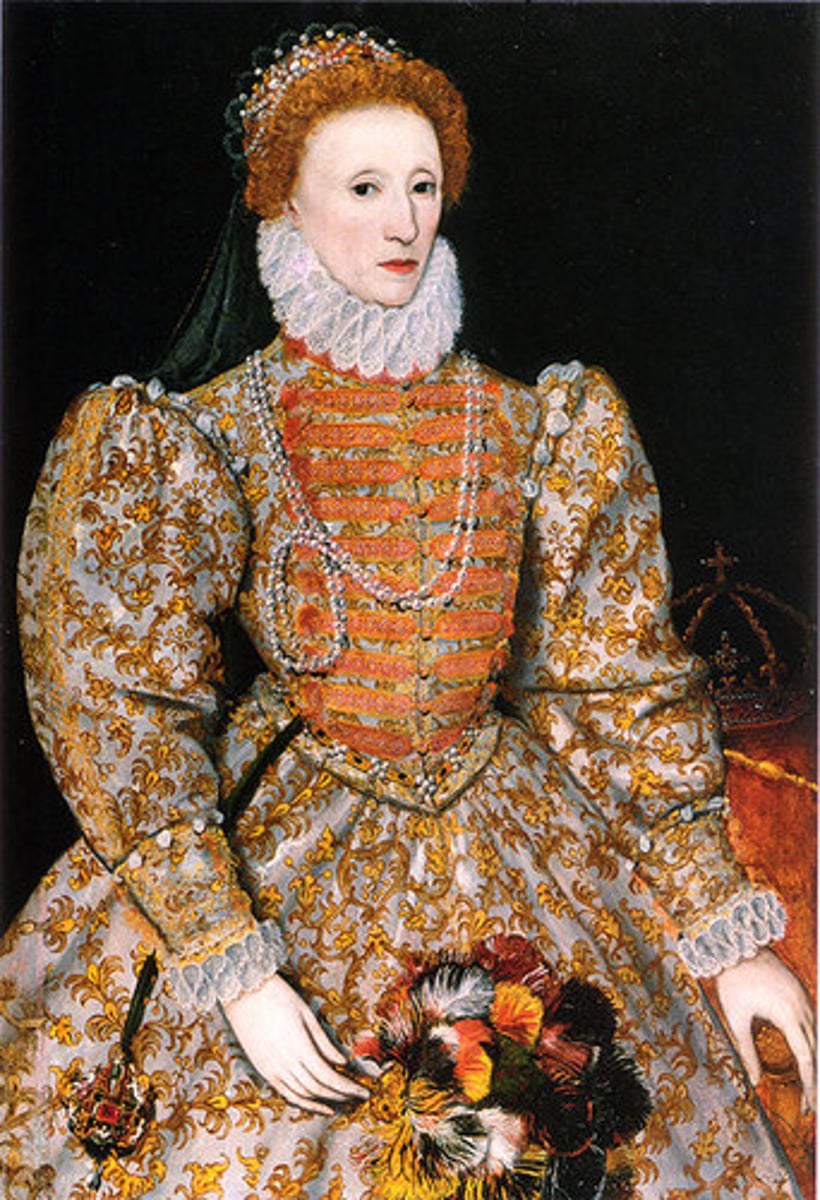
Elizabethan Settlement
Requirement that English people be publicly Anglican, but private worship was mostly ignored. Reveals toleration.
Puritans
English Calvinists
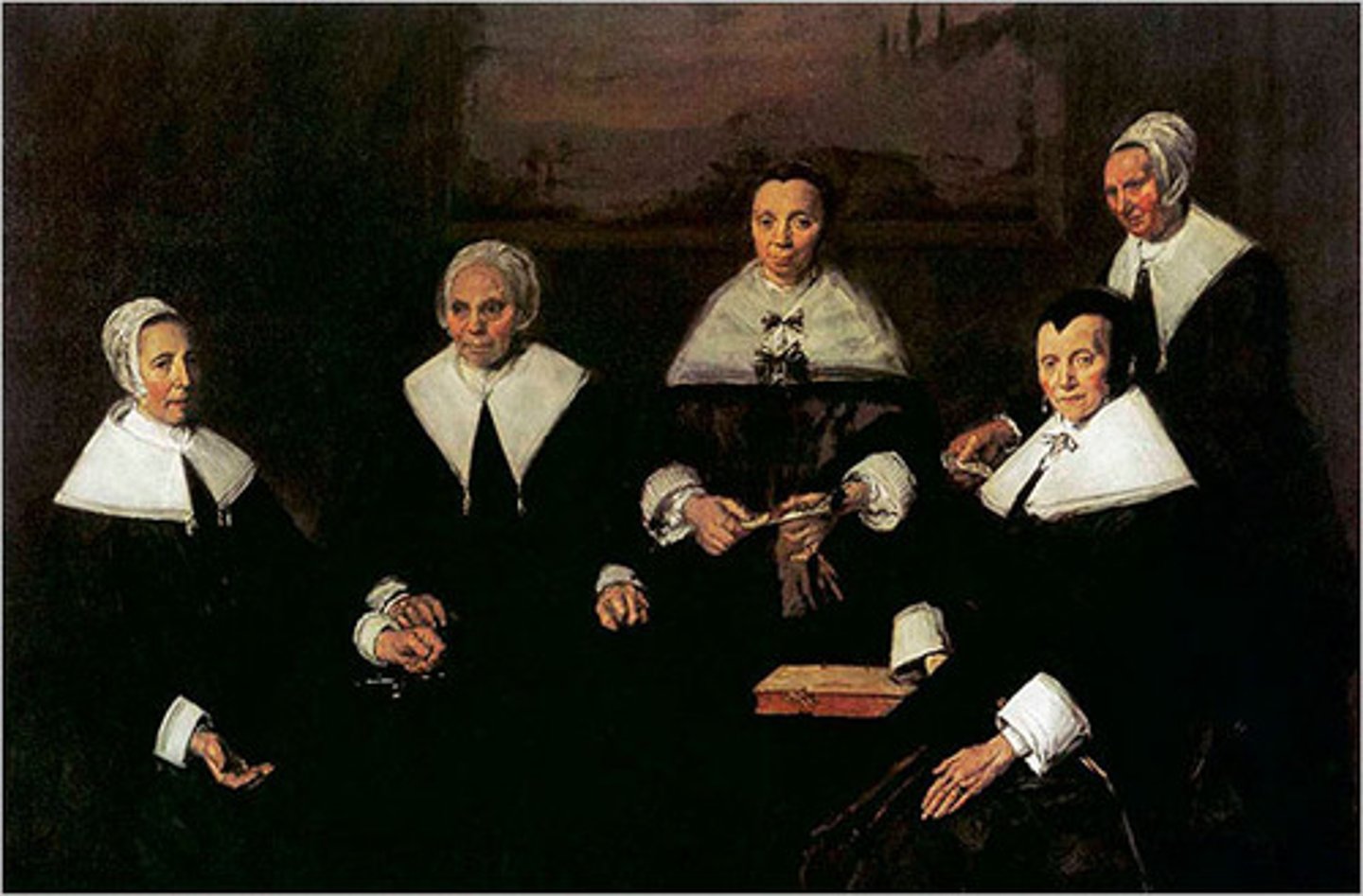
John Knox
Scottish theologian who founded Presbyterianism in Scotland and wrote a history of the Reformation in Scotland (1514-1572). A Calvinist.
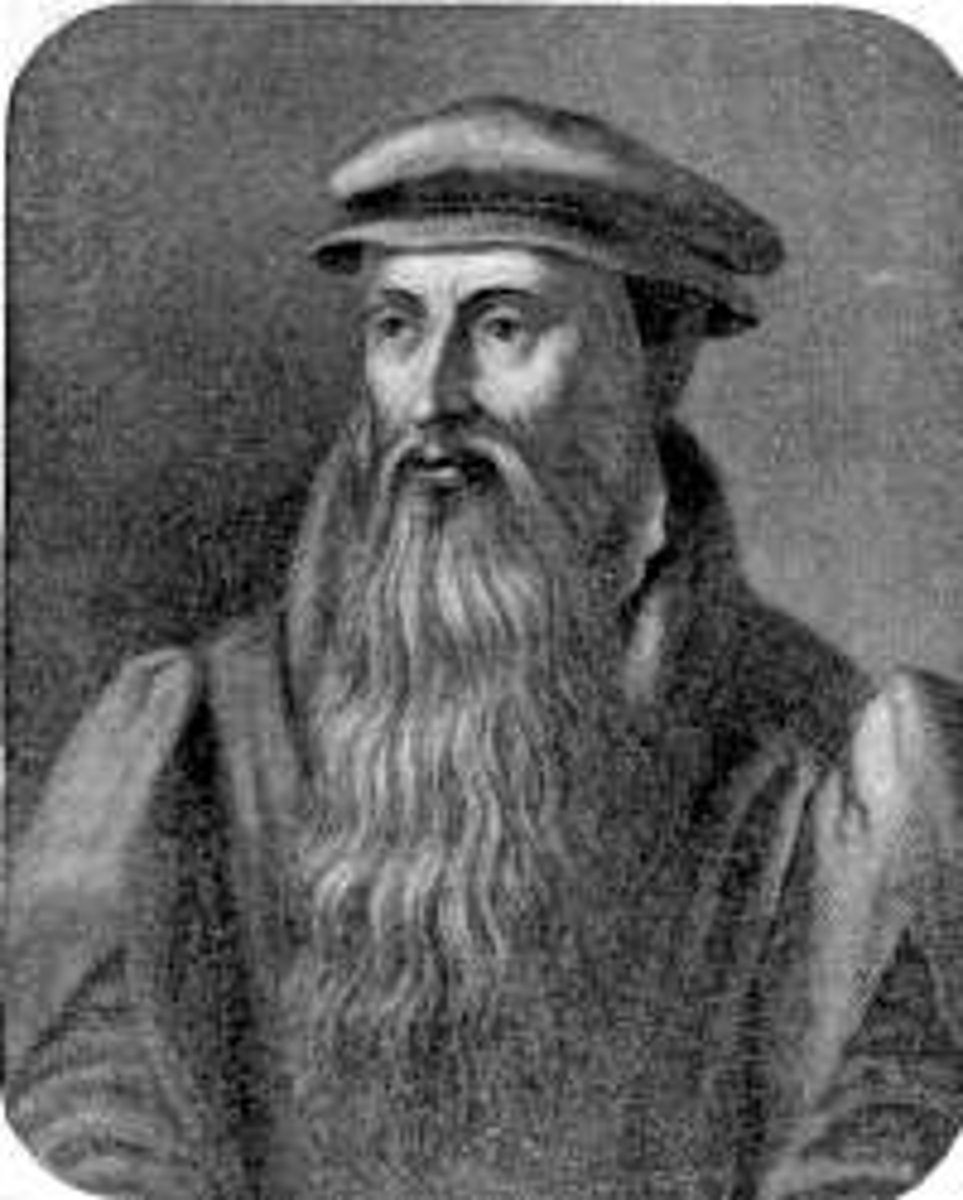
Valois
In France, this royal family fought against the Burgundy family for control and influence.
Catherine de Medici
French Queen of the last major Valois king, possibly responsible for triggering the St. Bartholomew's Day Massacre
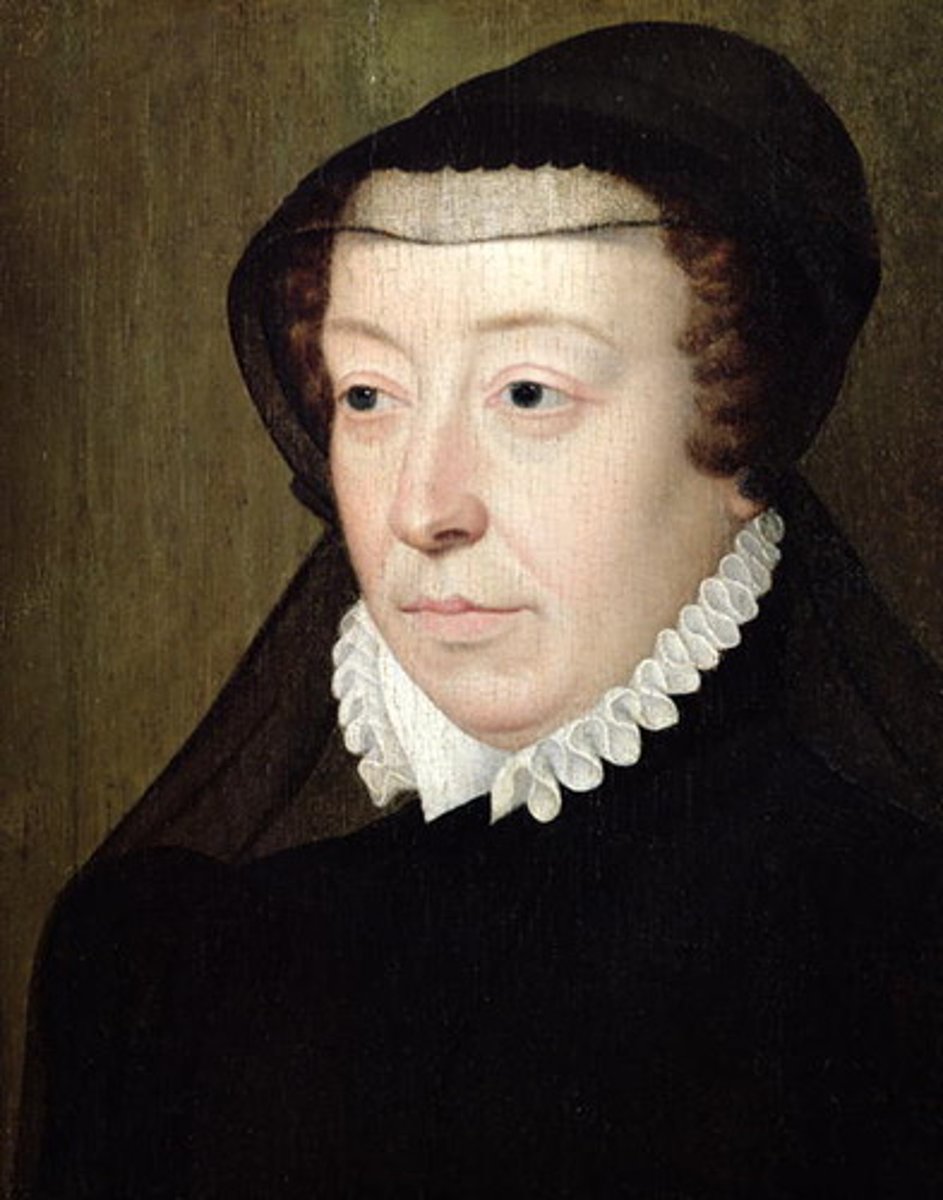
Huguenots
- French Calvinists
- Numbered Approx 2 Million in 1562 (Out Of A Total French Population Of Approx 19 Million)
Henry IV (Navarre)
- King of France (1589 - 1610)
- Politique
- Born Catholic, Raised Protestant, Confirmed Catholic After Assuming French Throne "Paris is worth a mass".
- Distrusted By Catholics (Fought War Against Catholic League)
- Traitorous To Protestants
- Survived 12 Assassination Attempts (Died By Assassination in 1610)
- Known Posthumously As "Good King Henry"
- Issued Edict of Nantes
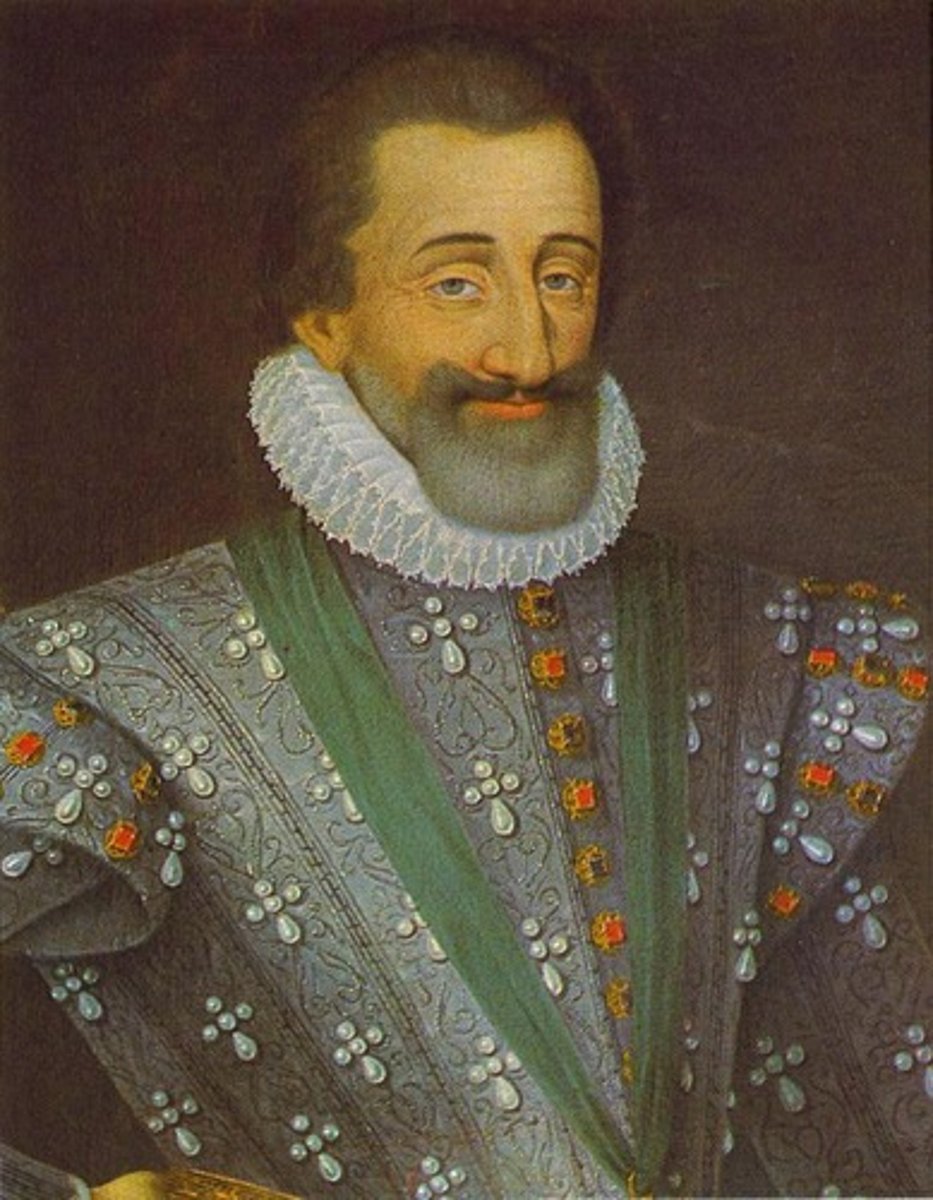
Bourbon Dynasty
This ruling family of France began with Henry of Navarre.
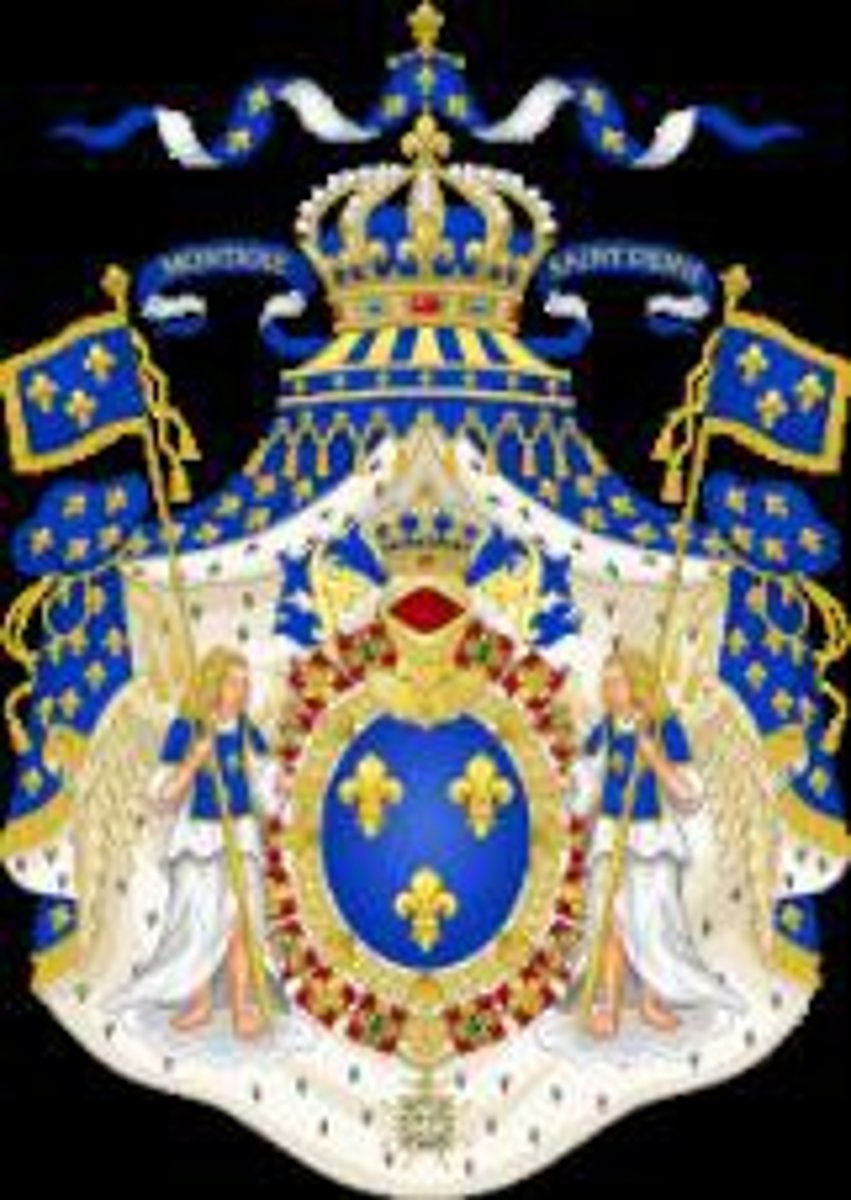
St. Bartholomew's Day Massacre
1572 Event where thousands of Huguenots were murdered across France. It began as a high profile Protestant wedding taking place in Paris. Triggered the religious wars and foreshadowed the bloody wars to come.
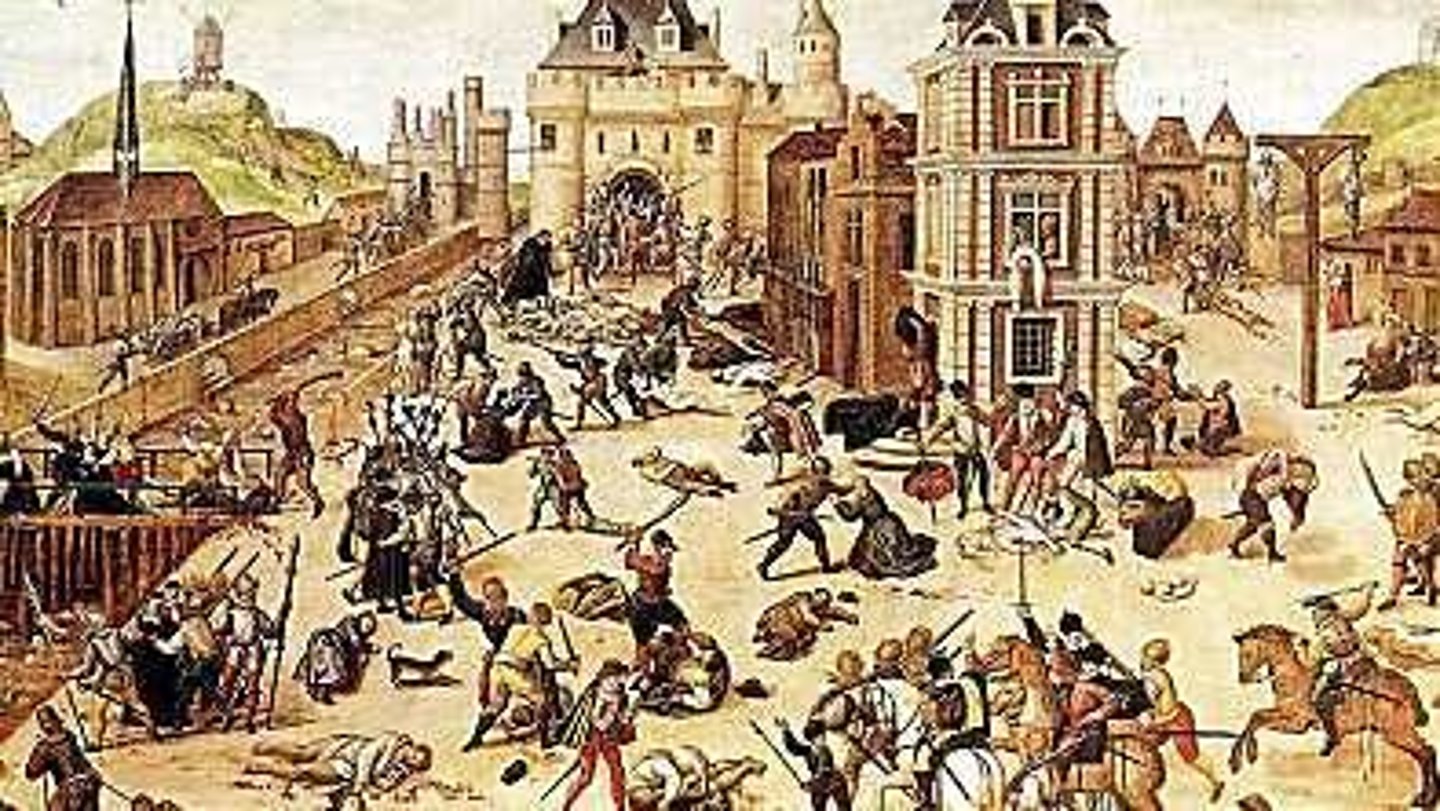
Edict of Nantes
- France (1598)
- Issued By Henry IV
- Ended The French Religious Wars
- Recognized Catholicism As Official Religion of France
- Gave Protection & Some Freedom of Worship to French Huguenots (French Calvinists)
- Huguenots could worship freely in their own walled cities. Issued in hopes of ending religious conflict in France.
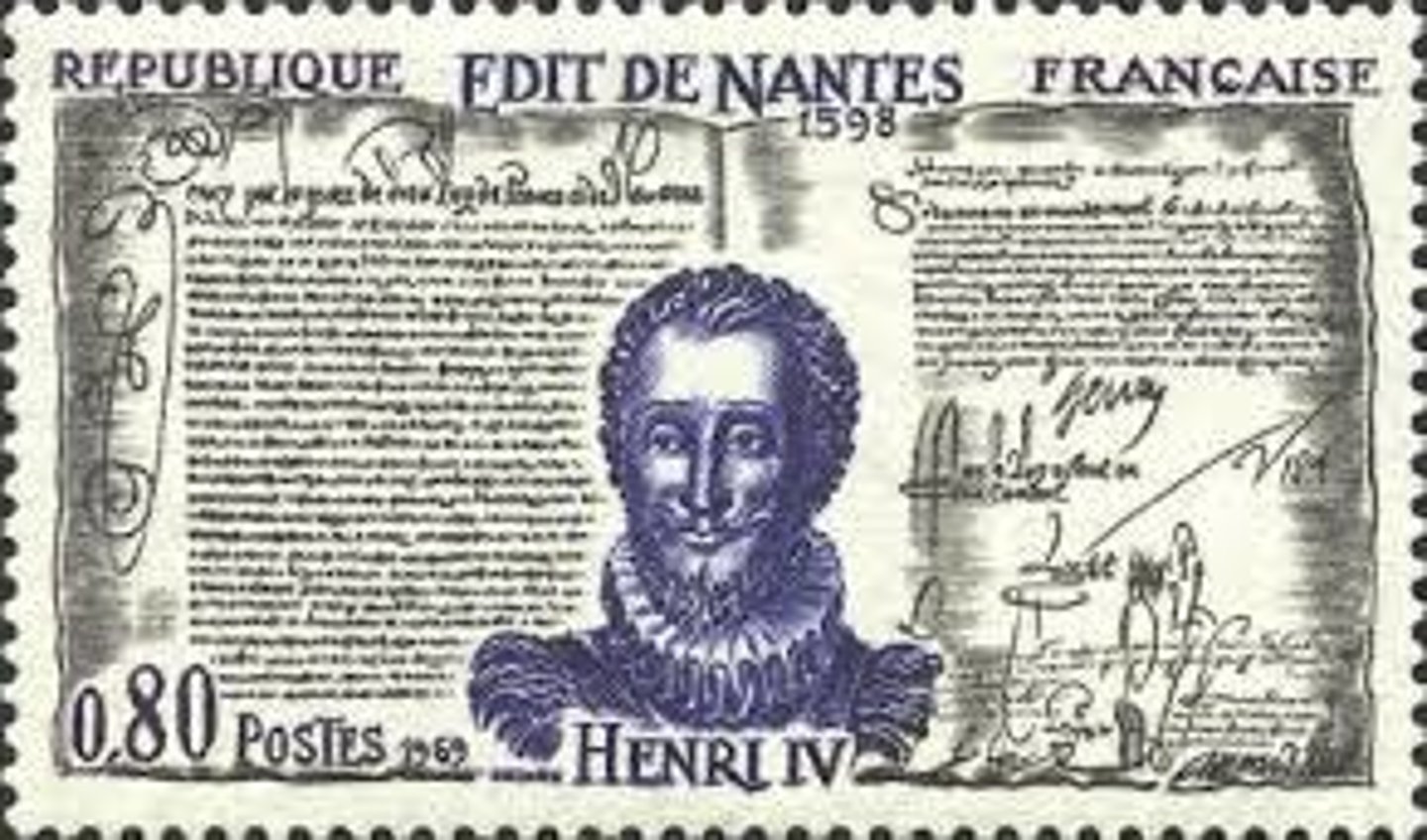
Politique
Leaders who put welfare of their nation above their religious concerns. Richelieu, Elizabeth and Henry IV are examples of this.
witchcraft persecution
- Height of Witchhunts, Late 1500s to Mid 1600s
- Centered In Germany, Switzerland, Parts of France, Eastern Europe
- Did Not Develop In Spain or Italy
- Est 40,000 - 60,000 People Executed (Approx 75% Women)
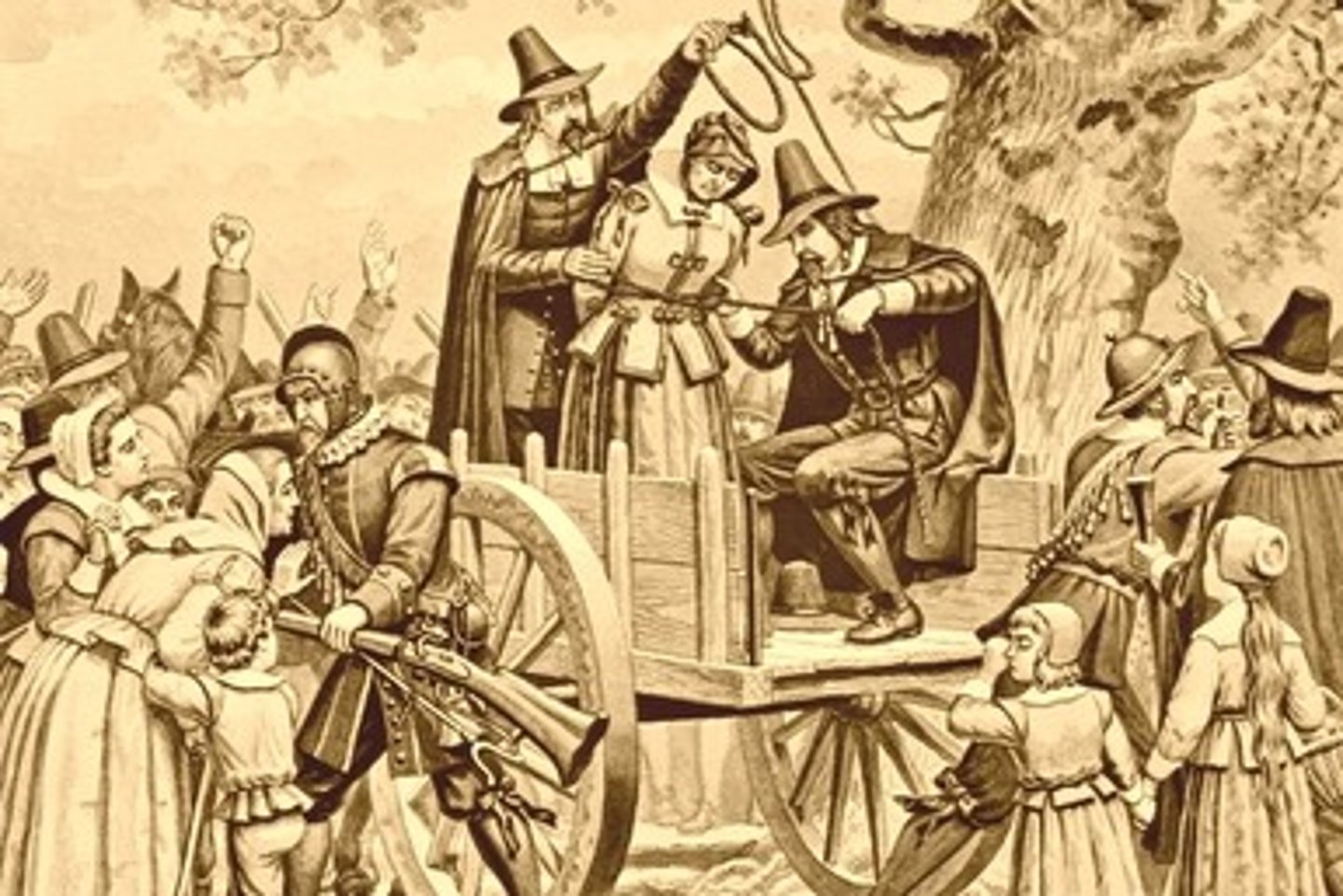
Dutch Revolts
- 1568 to 1609
- Began As An Independence Movement Against Habsburgs
- Developed Into Religious War As Well (Habsburgs & Catholics vs Rebels & Protestants)
- Resulted in Union of Utrecht (1581)
- Independence of United Provinces (1609)
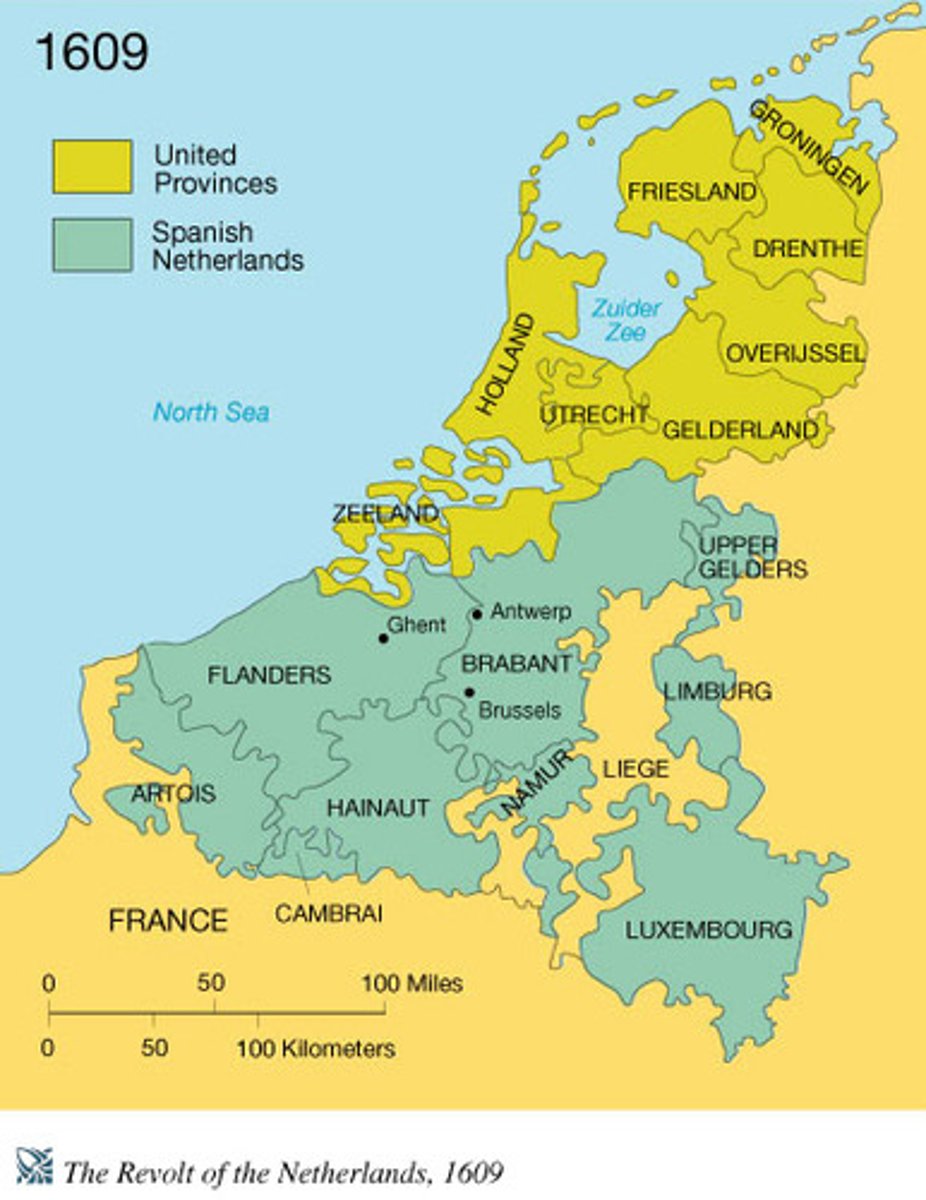
30 Years War
War between various Protestant and Catholic states in the fragmented HRE, it gradually developed into a more general conflict involving most of the great powers. The war became less about religion and more of a continuation of the France-Habsburg rivalry for European political pre-eminence.
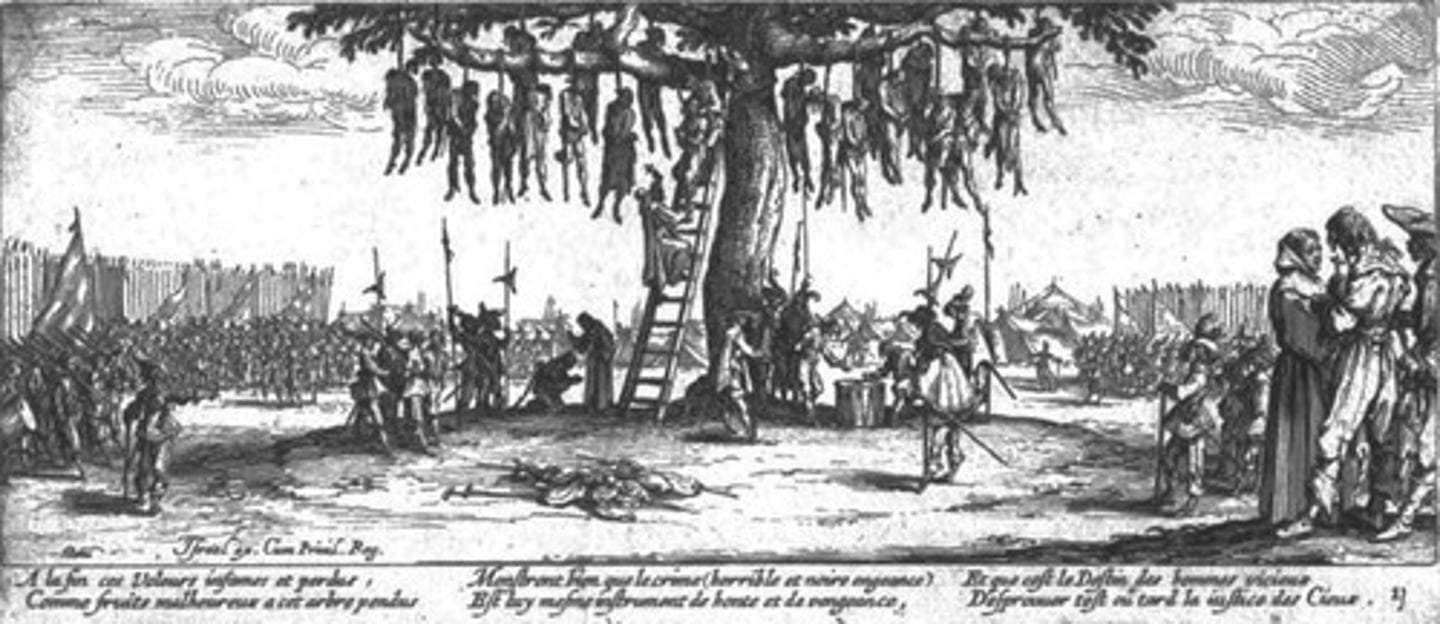
(New World exploration, religious policies, economic policies, military campaigns)
How did Spain's rise lead to its fall?
Defenestration of Prague
The throwing of Catholic officials from a castle window in Prague, Bohemia. Did not like the Peace of Augsburg, wanted to be Protestant but Habsburg leader was Catholic
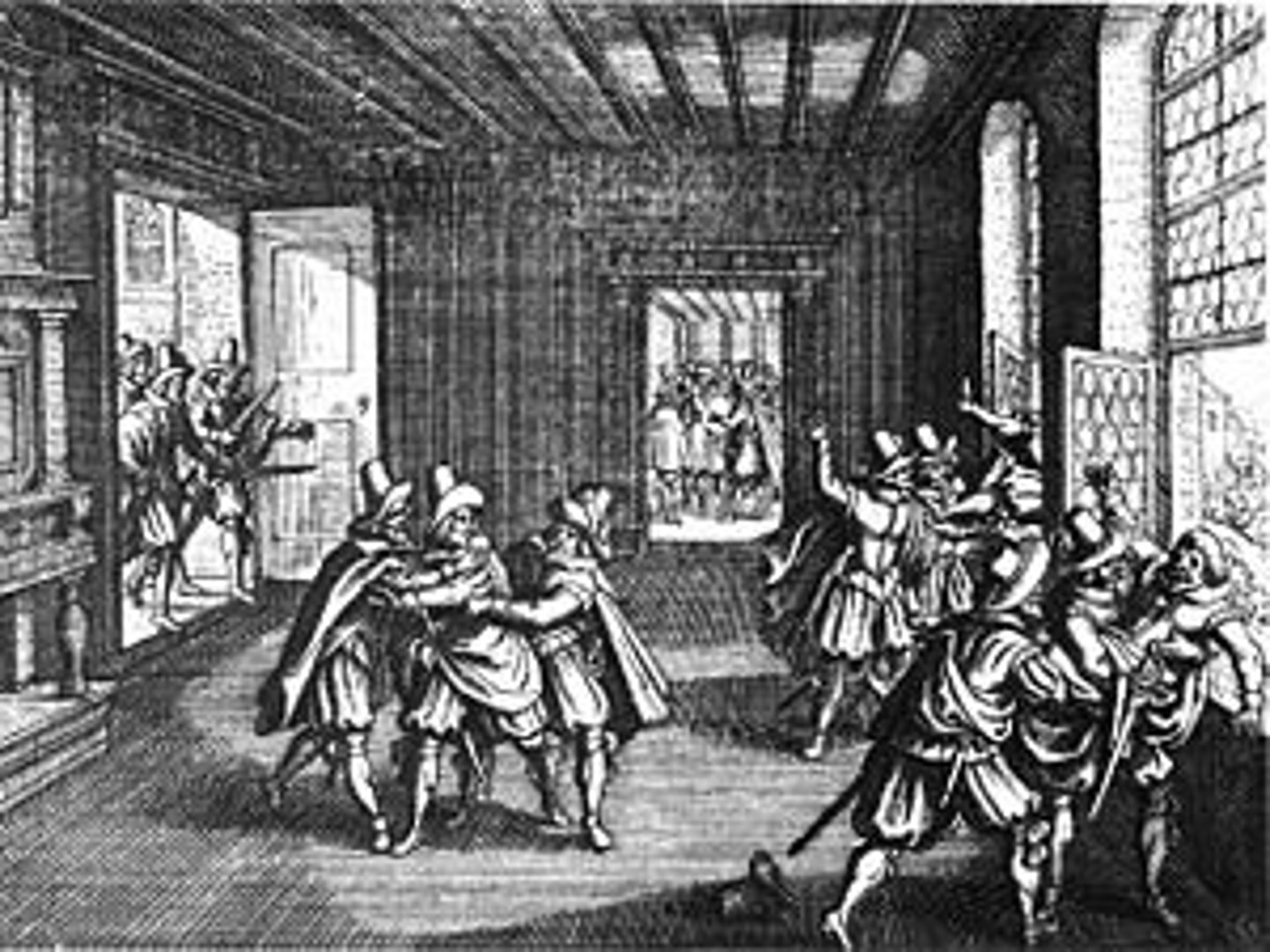
Gustavus Adolphus
Was the King of Sweden from 1611 to 1632 and is credited as the founder of Sweden as a Great Power,he began parish registration of the population-government could more efficiently tax and conscript the people and helped the domestic reform
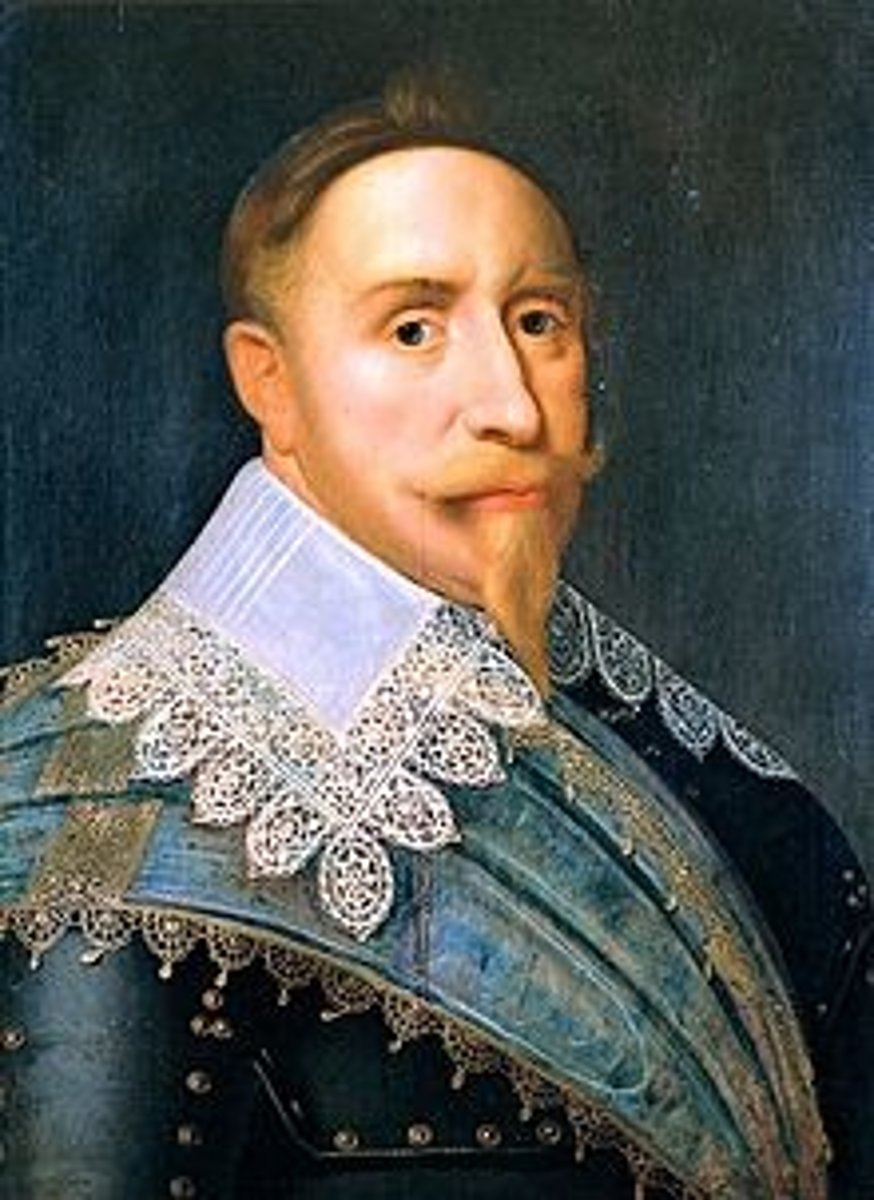
Cardinal Richelieu
Chief advisor to Louis XIII, led France in their war against the Huguenots. Later led France against the Catholic Habsburgs in the Thirty Years War.
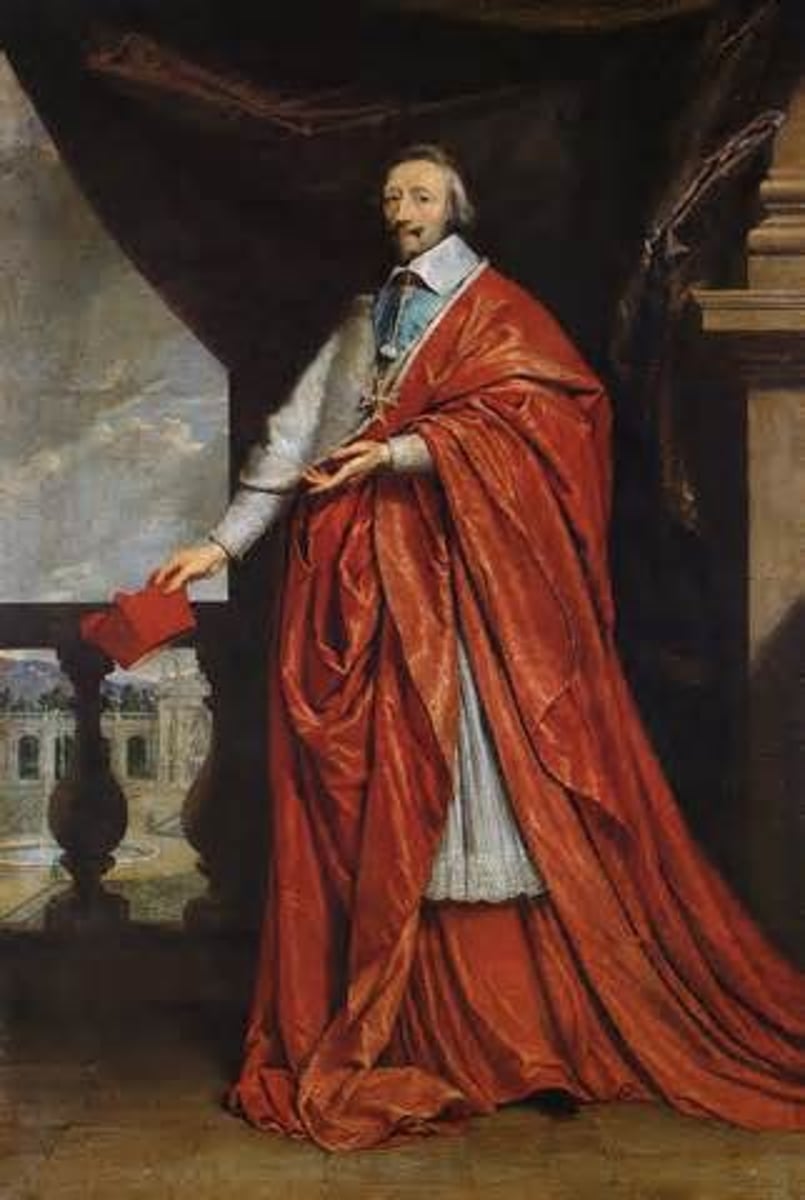
Peace of Westphalia
Was a series of peace treaties signed between May and October 1648, effectively ending: the European wars of religion, 30 Years War, and Period 1 of AP Euro
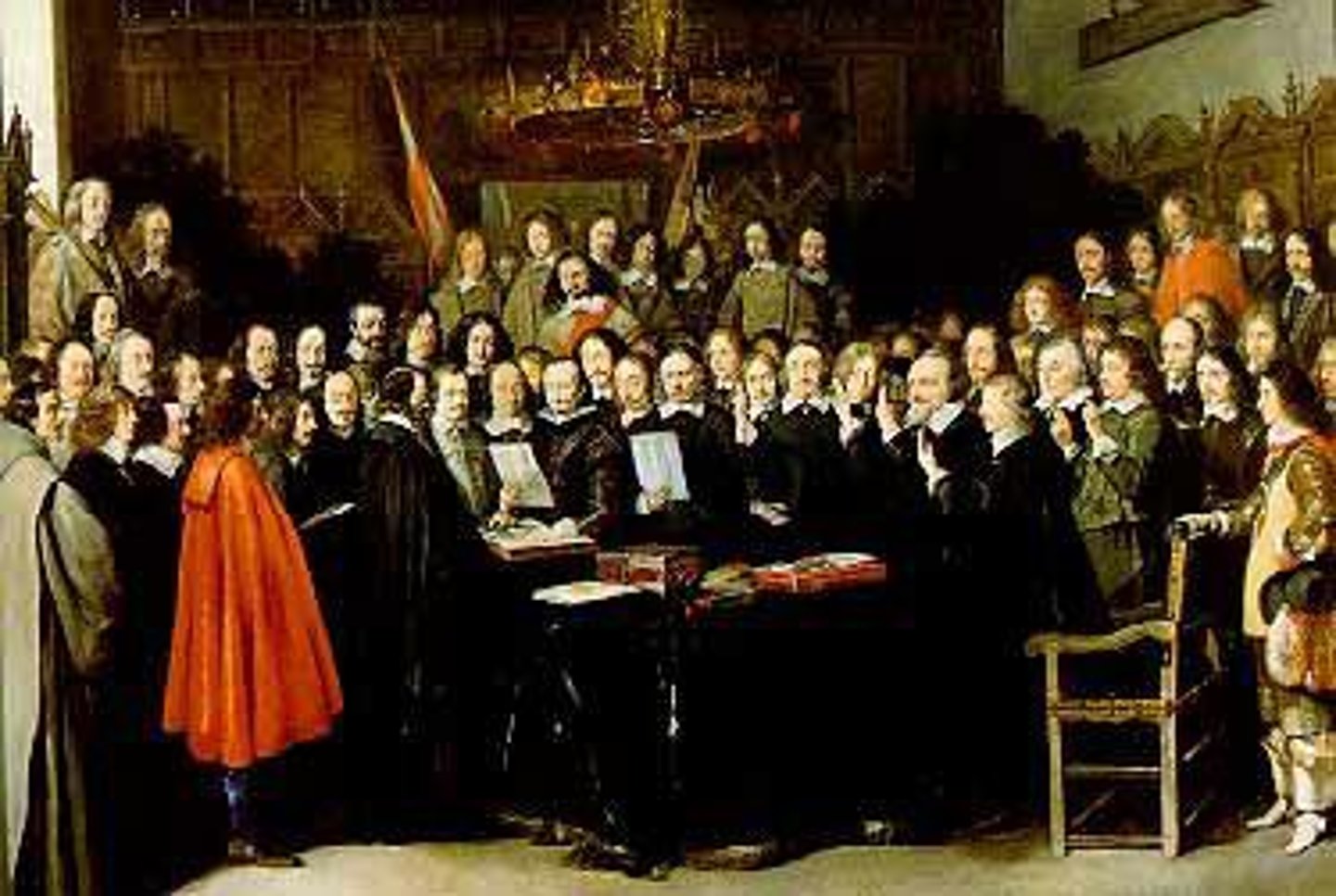
30 Years War Results
--France ascendant power
--HRE descendent power: Emperor has less control over regional rulers
--Private worship is okay (Calvinist can exist)
--Prussia (Northeast Germany) begins to emerge as a power
--Netherlands Independence from Spain
--Alsace region ceded to France
--Sweden gets some Baltic ports for about 5 minutes
